Updated February 2025
Most advertisers see Facebook as a fun playground for B2C companies who have a blast with challenges, competitions, and free takeaways.
Recent data confirms that B2C marketers use Facebook about 91% of the time compared to B2B marketers who use LinkedIn 86% of the time.
But... smell that? That's the smell opportunity.
Facebook advertising campaigns perform for both B2C and B2B brands. And this page shows you how.
TL;DR
- Should Your B2B Brand Advertise on Facebook?
- B2B Facebook Ads Success Stories
- B2C and B2B Facebook Ad strategies are not the same
- B2B Facebook Ads and the conversion funnel
- 1. Brand awareness campaign
- 2. Combine PR and Facebook Ads Campaign
- 3. Product Announcements Campaign
- 4. Share Product Tips and Insights Campaign
- 5. Create and Promote Original Research Campaign
- 6. Share Case Studies and Testimonials Campaign
- 7. Get New Leads with Quality Content Campaign
- 8. Side Project Marketing Campaign
- 9. Enhance Your Onboarding Experience Campaign
- Reaching Your B2B Audience on Facebook
- B2B Facebook Ads are worth it
- FAQs
Get brand new Facebook ad strategies straight to your inbox every week. 23,739 people already are!
Should Your B2B Brand Advertise on Facebook?
B2B Facebook ads absolutely work—you just need to know how to tailor them to reach the right audience effectively.
After working with hundreds of clients on Facebook ad campaigns, we can confidently say that there are high-ROI ad formats and targeting options available for both B2C and B2B advertisers. By leveraging tools like detailed targeting, custom audiences, and lookalike audiences, B2B brands can achieve impressive results in generating leads and driving campaign performance.
B2B Facebook Ads Success Stories
There are plenty of success stories that demonstrate the strong potential of Facebook advertising for B2B companies.
For example, we used Facebook ads (and lookalike audiences) as part of the strategy for ClipHire, a video-based employment platform that helps both job seekers and HR professionals stand out in the application process.
How’d that turn out? With a 492% increase in CTR, a 255% boost in website traffic, and a 59% jump in conversions. Read more about it here.
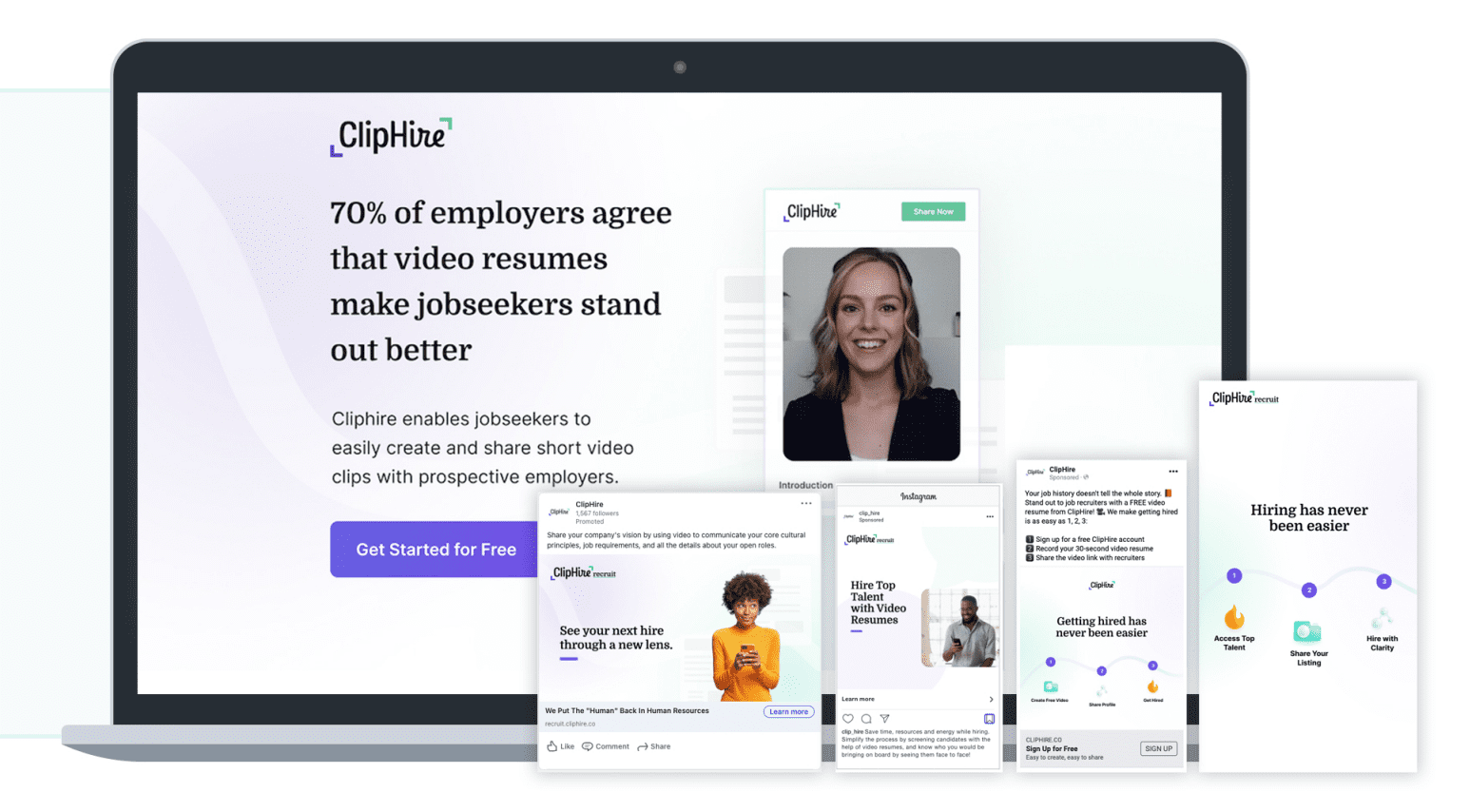
Take another example: ShipCalm, a third-party logistics and fulfillment service for high-growth online sellers.
Using Facebook Ads, we increased their conversions by over 400%, decreased the CPA by 21%, and raised their conversion rate by 12%. Read more about it here.
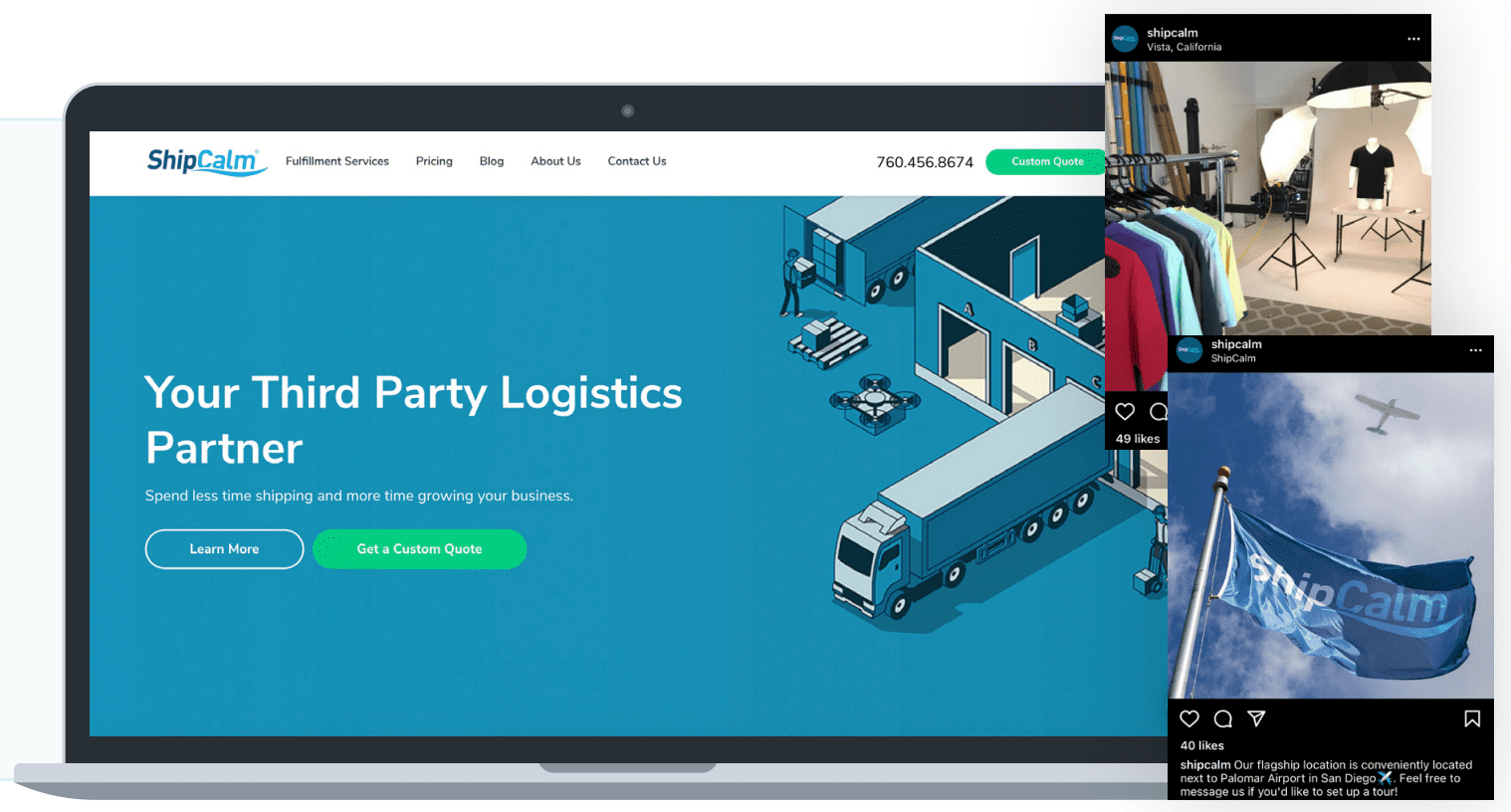
We've got plenty more where this came from too. Over 200 to be precise. In this Facebook ad example post we wrote, you'll see many examples from B2B brands: CoSchedule, Wrike, Asana, FreshBooks…the list goes on and on.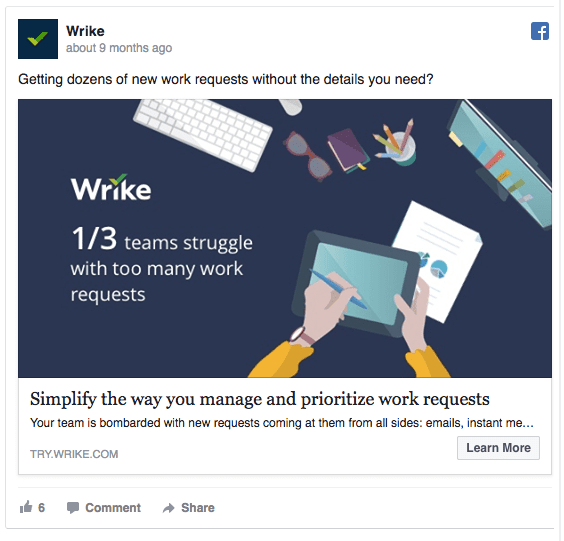
B2B brands like Wrike advertise on Facebook
If that's not enough, Facebook is already the top social network for B2B promotion. Since 2024, approximately 83% of B2B marketers use Facebook for content marketing.
There's no reason B2B brands should be left out of the party.
B2C and B2B Facebook Ad strategies are not the same
Of course, there's a significant difference between B2C and B2B Facebook ad strategies.
Clearly, the audience for a B2B product is different from an audience you'd target with ads for chocolate bars or holiday travel.
We put together this guide to help you better understand B2B Facebook ads and decide whether they're a good fit for your company.
Up next, you'll find exciting Facebook B2B advertising ideas, tactics, and best practices, all spiced up with stellar ad examples.
B2B Facebook Ads and the conversion funnel
Like any other advertising channel, successful Facebook advertising requires that you understand your target audience and conversion funnel. Otherwise, you won't be able to promote the right offer at the right time to the right audience.
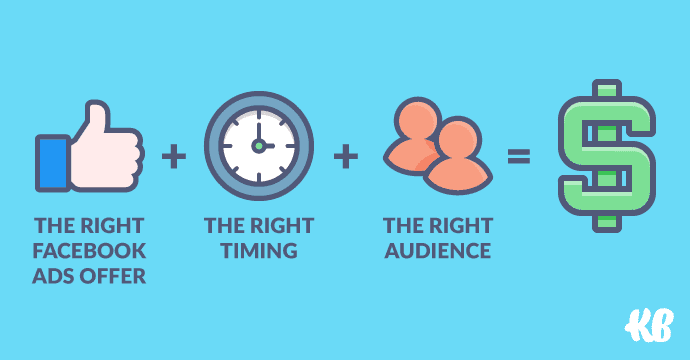
Your formula for Facebook ad success
B2B Facebook advertising is similar to B2C marketing in that you can't keep trumpeting the same message to every target audience and hope they'll convert.
That's just wrong. There's a decision-maker behind every large B2B enterprise—but they're still people like you and me. They're the ones that need to be directed towards the purchase with small consecutive conversions (also called a micro-conversion).
You should aim to tailor all your marketing messages around a particular conversion stage.
Here's a chart to give you some campaign ideas for every step of your marketing funnel:
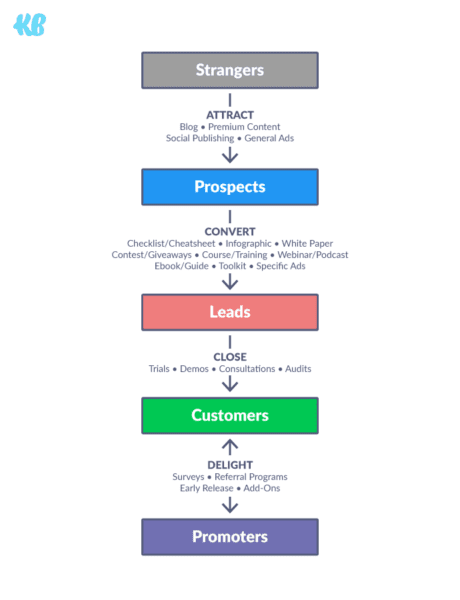
The B2B conversion funnel
Also, don't limit your Facebook ads to a single offer.
Instead, build a flow of lead generation and remarketing ads that will guide your prospects towards the final deal without scaring them away by screaming “BUY ME!” on the first encounter.
In addition to the different conversion funnel stages, B2B Facebook audiences also differ in regards to job seniority, industry, and many other factors.
The message you use to target CEOs will be very different from a message targeting assistants.
As you get started with B2B Facebook ads, take your time to define the conversion actions you want your target audiences to complete. These should be fully defined before you proceed to the development process for messaging and value propositions.
To that end, Zuora's sales pitch deck has been named “The Greatest Sales Deck Ever.”
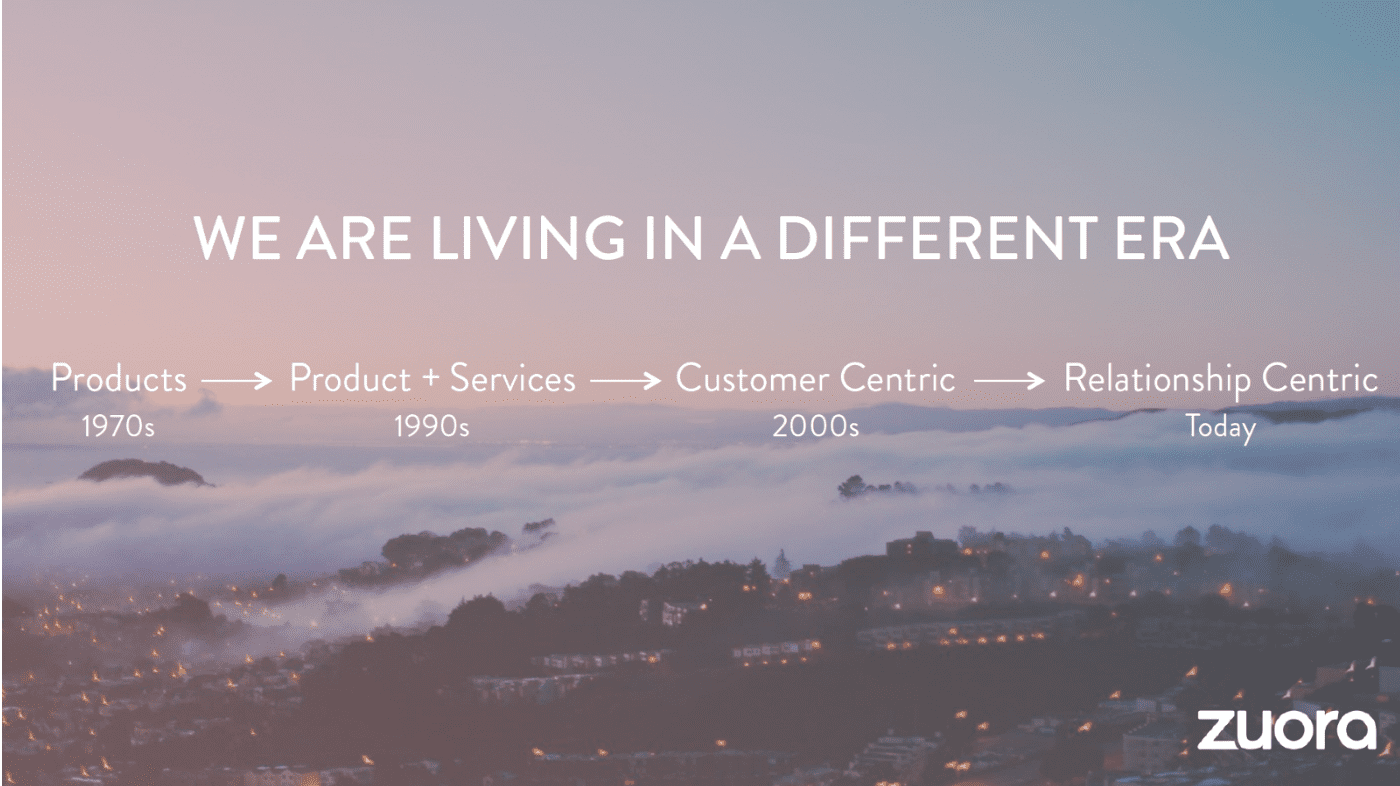
A page from Zuora's sales deck – source
The 5-step pitch deck:
- Name a big, relevant change in the world
- Show there will be winners and losers
- Show and tease the Promised Land
- Explain how some product features could help to reach the Promised Land
- Show how your product will get the customer to the Promised Land
Your B2B Facebook ads should do the same: Convince the potential customers there's a way to improve their work or increase their company's profits. The solution? Your product.
Leaving Salespeople Behind
B2B and B2C buyers are becoming increasingly independent of salespeople during the buying process. Recent research shows that most buyers now prefer to research products on their own and make decisions based on online information, including websites and ads.
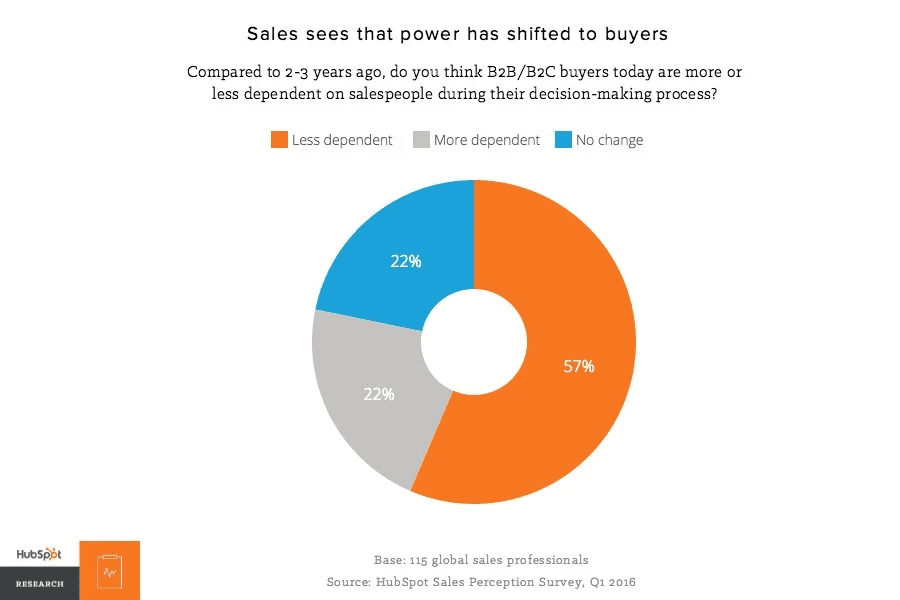
B2B buyers are becoming more independent
This shift means your B2B ads and website need to act as your virtual sales team. They should clearly communicate the problem your product solves, the value it provides, and build trust through social proof, like testimonials or case studies. Additionally, a strong call-to-action (CTA) is critical for guiding prospects.
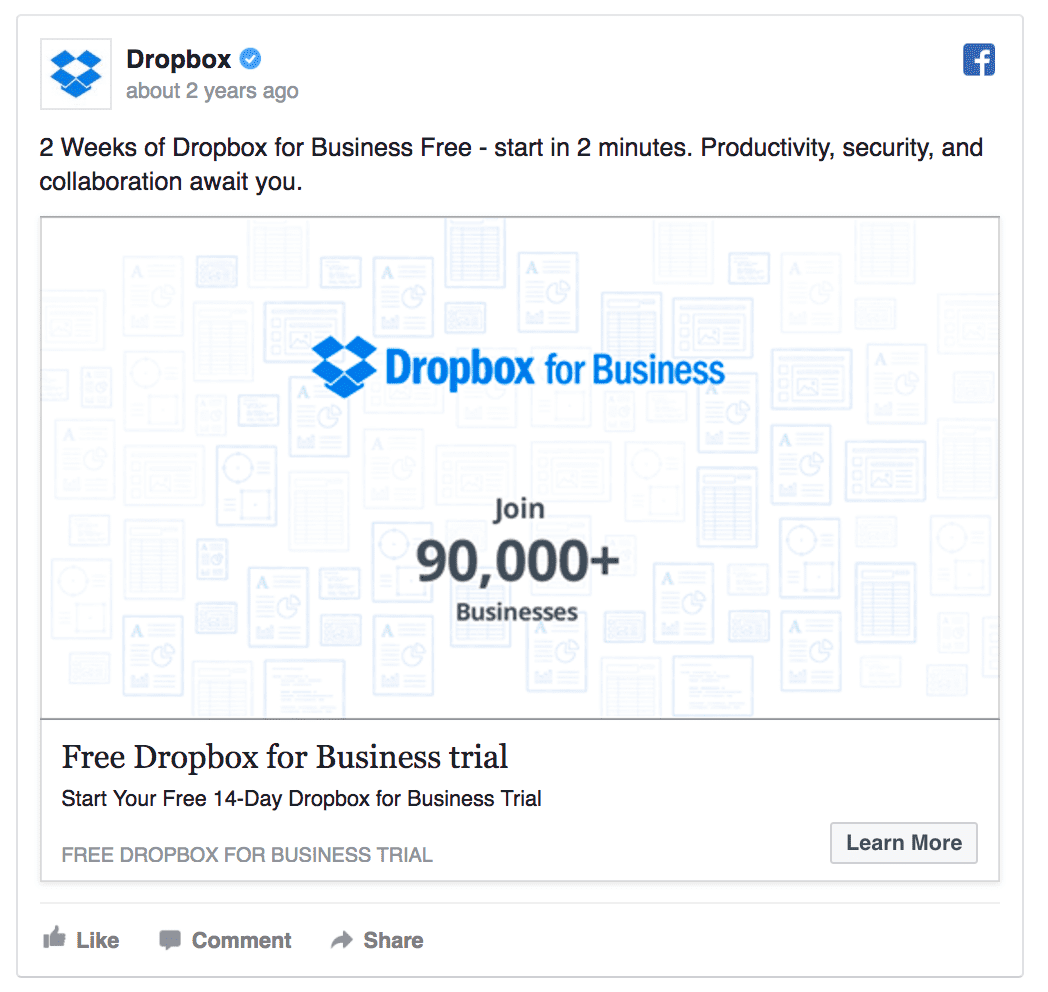
Dropbox emphasizes their large user base
For instance, Dropbox highlights its credibility with a Facebook ad stating, “Join 90,000+ Businesses,” emphasizing its established B2B customer base.
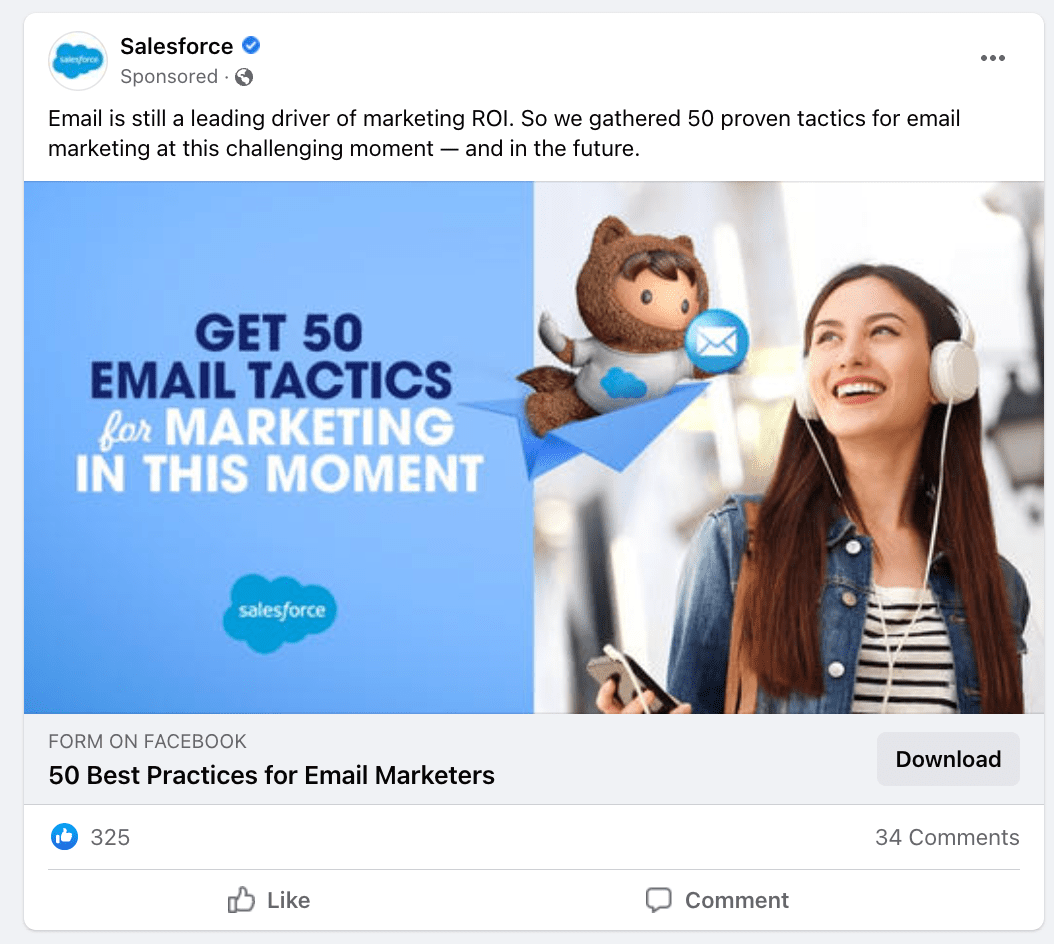
Similarly, Salesforce targets cold audiences with educational resources, building trust before retargeting them with product-specific ads.
We did some research and found some super-smart examples of B2B Facebook advertising done right.
Here's what we found.
1. Brand awareness campaign
Jumping into a sales pitch on the first encounter with a potential customer rarely works, especially if they’re unfamiliar with your brand or product. This is where a brand awareness campaign shines.
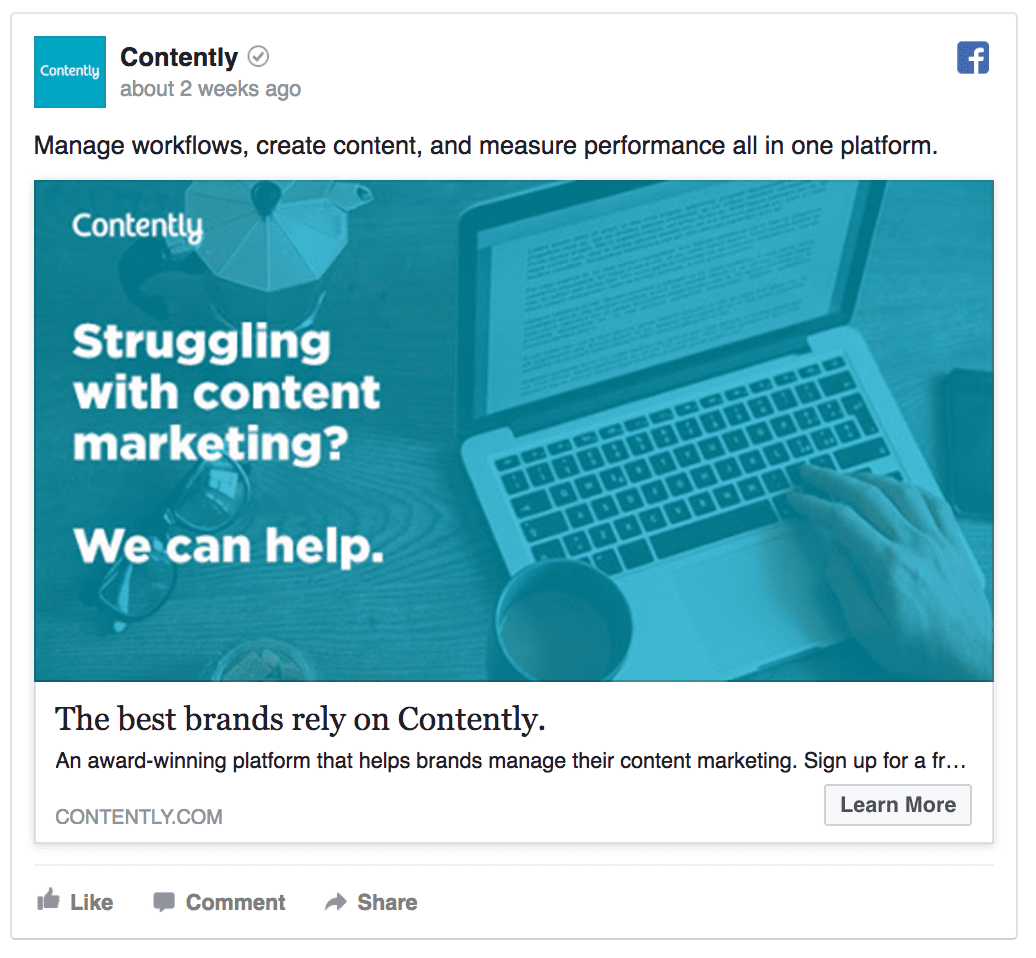
Contently’s Facebook ad isn’t selling anything
For instance, Contently’s Facebook ad highlights their work with high-level clients and industry awards, focusing on creating recognition rather than pushing for immediate action.
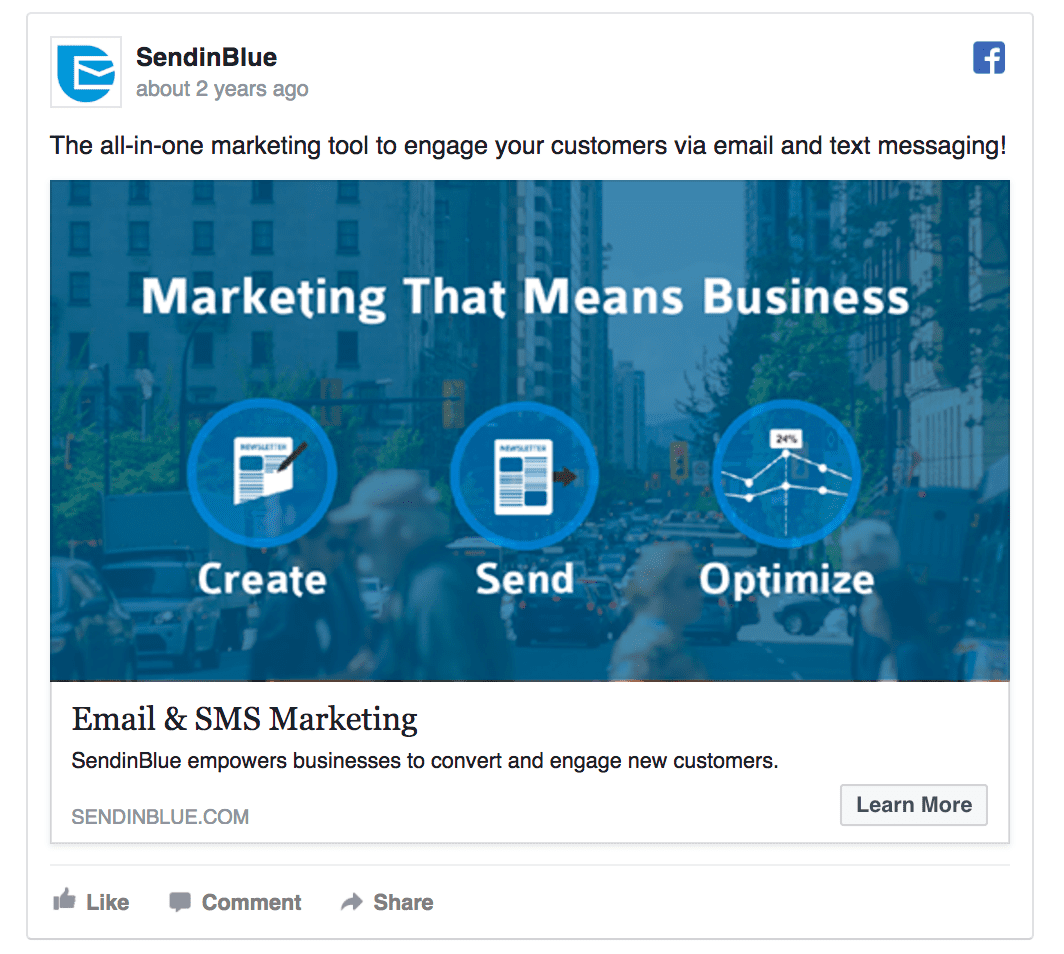
SendinBlue’s ad introduces their product
Similarly, SendinBlue’s ad introduces their product with the headline “Email & SMS Marketing,” ensuring future recall when prospects need such tools.
Best practices for B2B brand awareness campaigns:
- Clearly define your value proposition and brand positioning.
- Use the "Brand Awareness" campaign objective in Facebook Ads Manager.
- Target a broad audience and let Facebook optimize ad reach.
- Encourage prospects to learn more about your product/service instead of immediately proposing a demo or sign-up.
2. Combine PR and Facebook Ads Campaign
If your company has been featured in the news or celebrated an industry win, don't stop at the press release—extend the buzz to your Facebook audience. Sharing positive media coverage on Facebook not only amplifies your PR efforts but also reinforces trust and credibility with your audience.
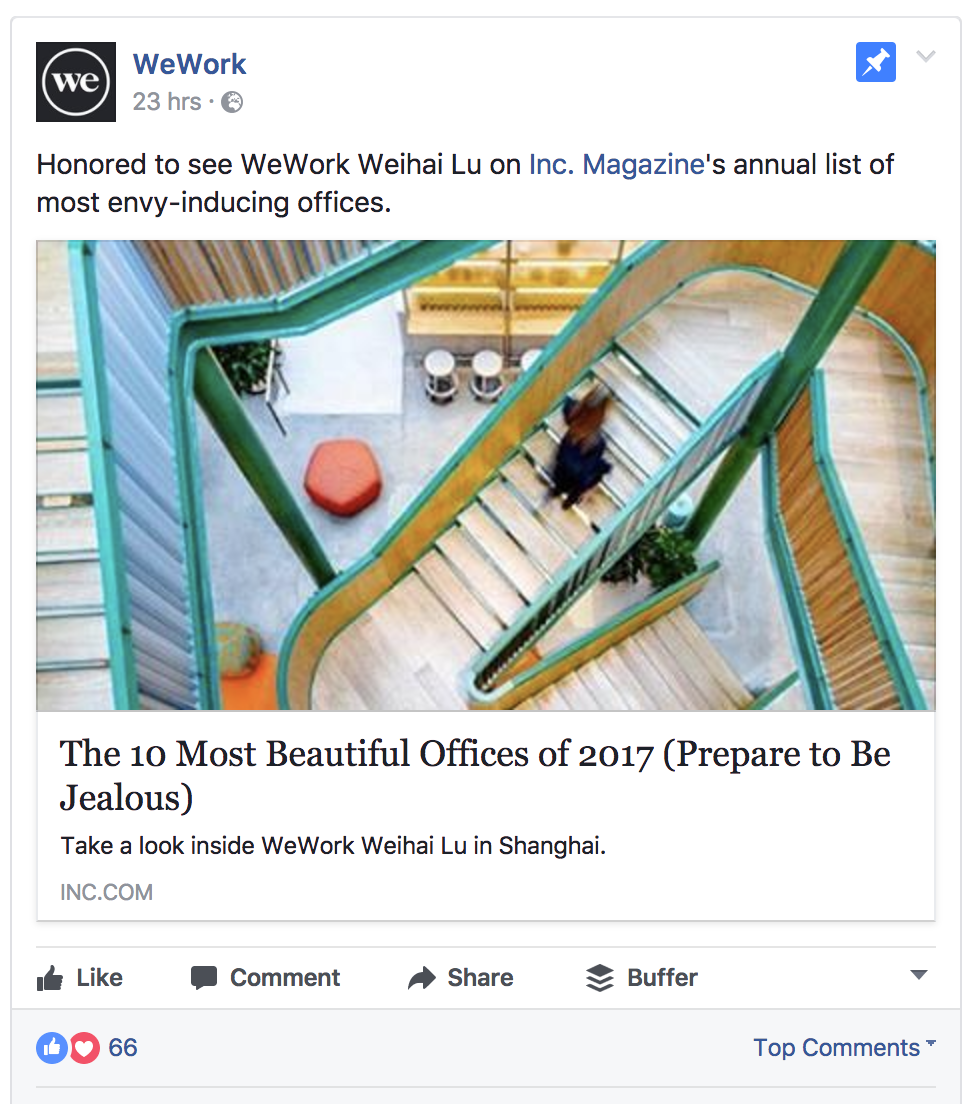
WeWork’s sharing positive media mentions
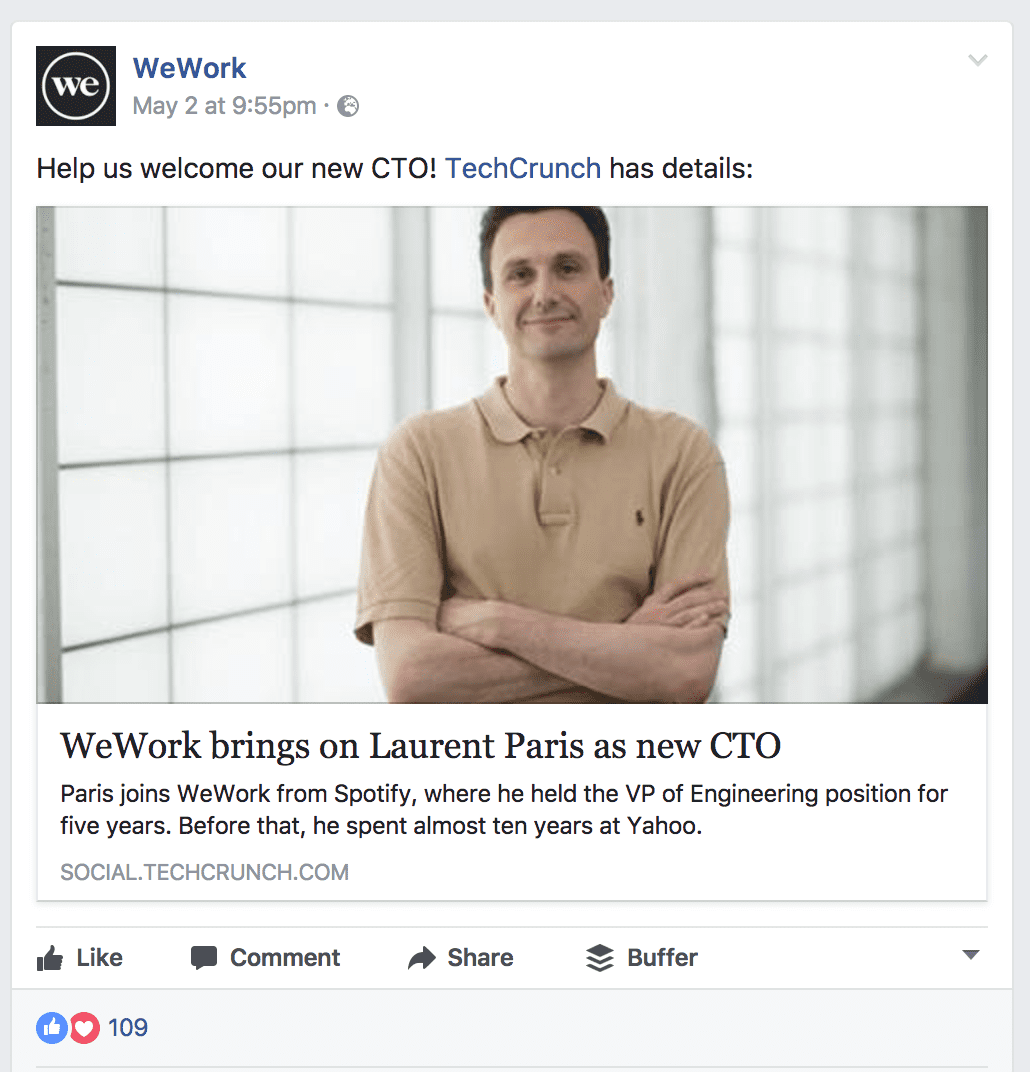
WeWork’s Facebook post of a TechCruch article
Take WeWork, for example. They’ve shared articles from publications like Inc. and TechCrunch on their Facebook page, ensuring their audience sees these trusted third-party endorsements. Pinning these posts further increases visibility for anyone visiting their page.
Why does this matter? Third-party mentions build trust in a way standard ads can’t. Studies show that 91% of younger consumers trust reviews and recommendations from others as much as personal endorsements. Beyond boosting product credibility, sharing media coverage can also enhance your company’s reputation as a desirable employer. Many brands also add the “Featured In” snippet on their landing pages to increase trust. It will have the same positive effect on your Facebook page.
Next time your brand is mentioned by a major publication or industry site, don’t let the opportunity pass. Highlight it on Facebook to reinforce trust, widen your reach, and leave a lasting impression.
3. Product Announcements Campaign
Your existing customers are usually the first to care about your product updates, but relying on blogs, email newsletters, or press releases alone can limit your reach. Not everyone opens every email or visits your blog regularly. That’s where Facebook ads come in.
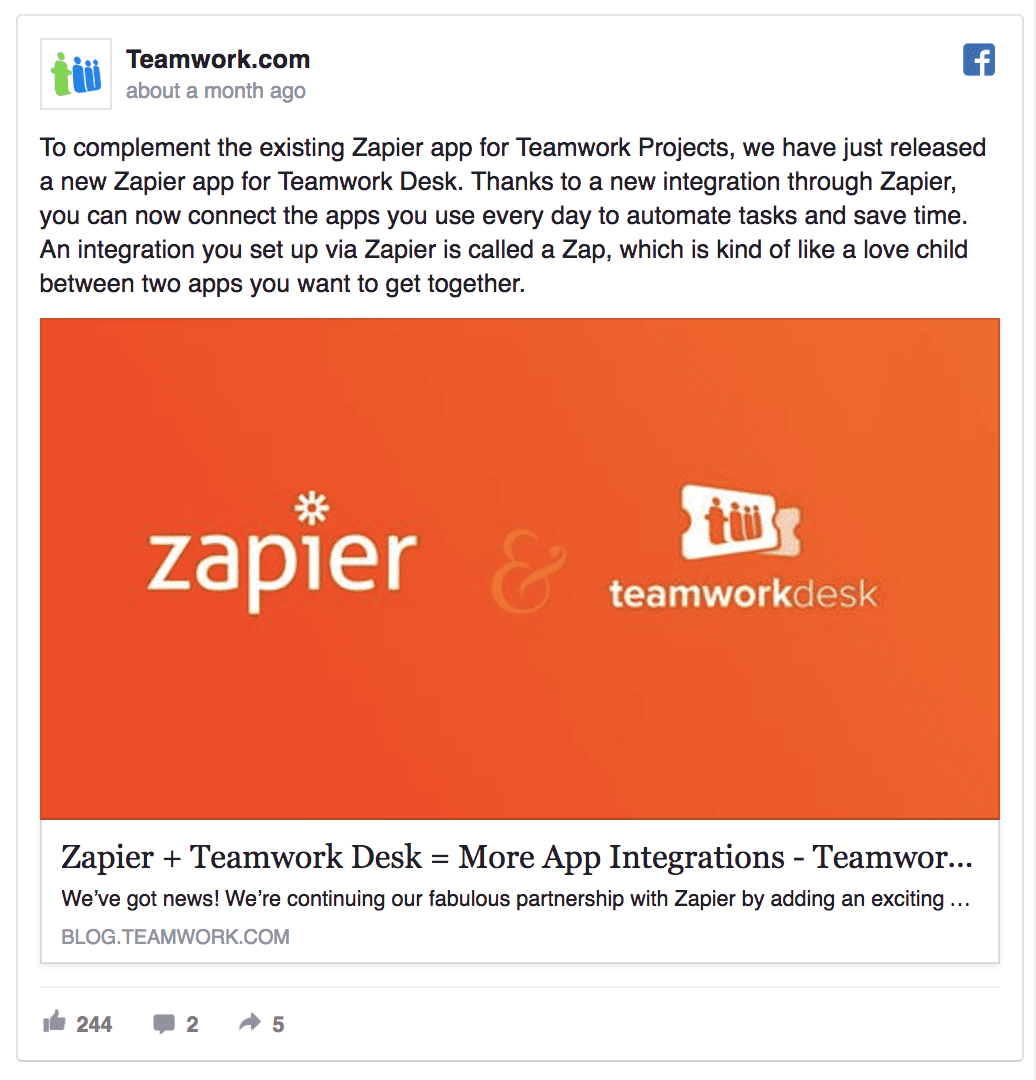
Teamwork's product announcement
Using Facebook ads for product announcements ensures your updates are seen by a wider audience, including both existing customers and potential new ones. A great example is Teamwork’s ad campaign promoting their new Zapier integration. By showcasing how this feature enhances their users' workflows, they successfully grabbed the attention of their audience.
When running product announcement campaigns, consider tailoring your ads to different audience segments:
- Existing customers who are already familiar with your product
- Warm leads who are on the verge of converting
- Cold leads who may find value in your product’s new features
Using targeted Facebook ads for product announcements not only ensures visibility but also helps you build excitement and engage various parts of your audience. By aligning your messaging with their needs, you can drive more conversions while keeping your loyal customer base informed and delighted.We'll stop on the B2B Facebook ad targeting options later in this article.
4. Share Product Tips and Insights Campaign
Sharing product tips is a smart way to keep your existing customers engaged while attracting potential clients. Unlike product updates, which often focus on new features, tips and insights highlight the practical ways your product can deliver value every day. This approach reinforces loyalty and helps your audience get the most out of your offerings.
Keeping your client base happy is critical in B2B. According to a 2014 Ogilvy study, 74% of consumers identify word-of-mouth as a major influence on their purchasing decisions, while 42% are more likely to connect with brands that engage them beyond sales pitches. The takeaway? Be helpful, not pushy.
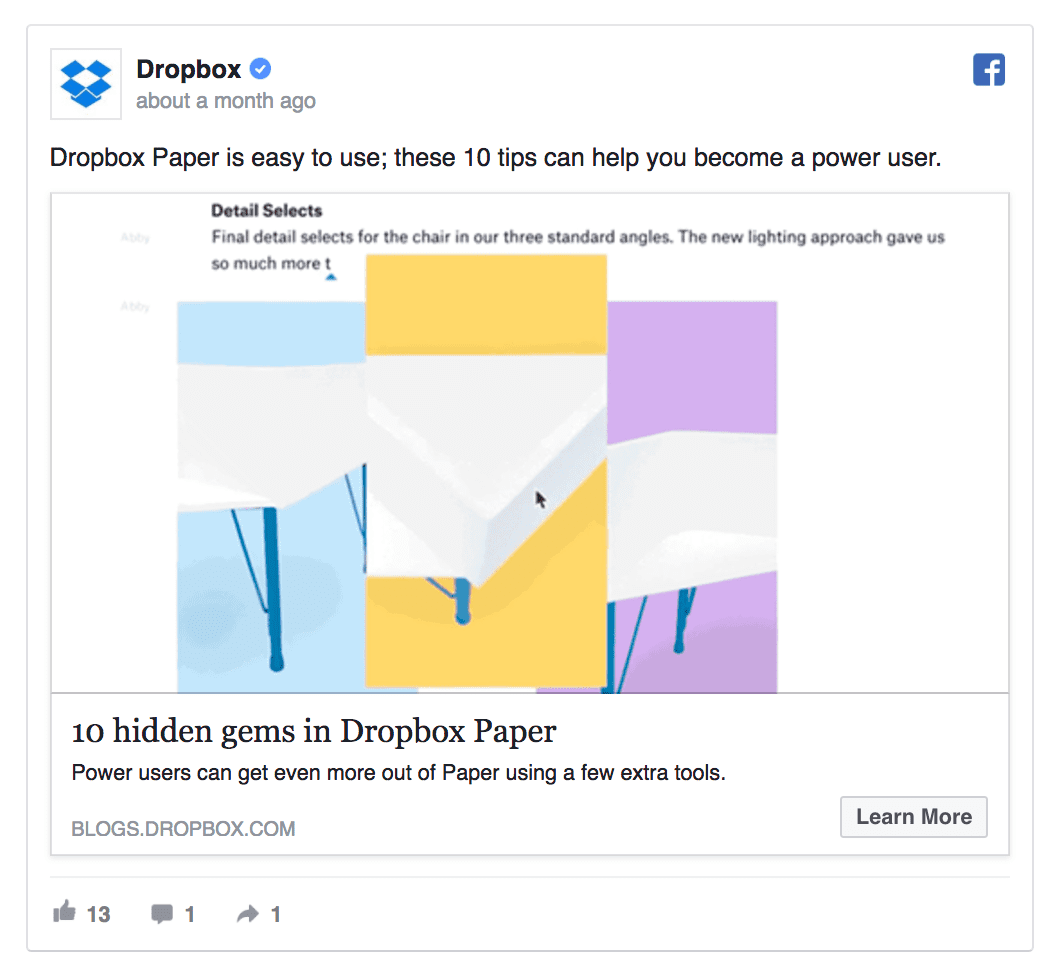
Share product tips like Dropbox
Dropbox excels at this with its Facebook marketing. One standout campaign shared "10 tips to get more out of Dropbox Paper," offering valuable insights to their users while reinforcing the product's utility. These kinds of campaigns build trust and loyalty while subtly positioning your brand as a go-to resource.
Best Practices for Sharing Product Tips on Facebook:
- Focus on tips that address common pain points for a large segment of your audience.
- Target existing customers and fans who are already familiar with your product.
- Experiment with promoting these tips to warm leads to help them see the full potential of your product and encourage conversions.
By delivering actionable insights, you not only strengthen relationships with current customers but also attract new prospects who value brands that prioritize education and support. It’s a win-win strategy for long-term engagement and growth.
5. Create and Promote Original Research Campaign
In a crowded digital landscape, original research is a powerful way to set your brand apart. Platforms like WordPress see around 70 million new posts each month, and this number continues to grow. Amid such content saturation, original, data-driven insights give your brand the credibility and authority needed to stand out.
Great content marketing, when done right, can do half the selling for you by providing immense value to potential clients. According to Kissmetrics, the pillars of exceptional content marketing include:
- Originality
- Strong headlines
- The actionable nature of content
- Providing helpful answers
- Reliable information resources
- Highly engaging content
- Images that help to deliver your message
- Smart punctuation
- Sharing the latest information
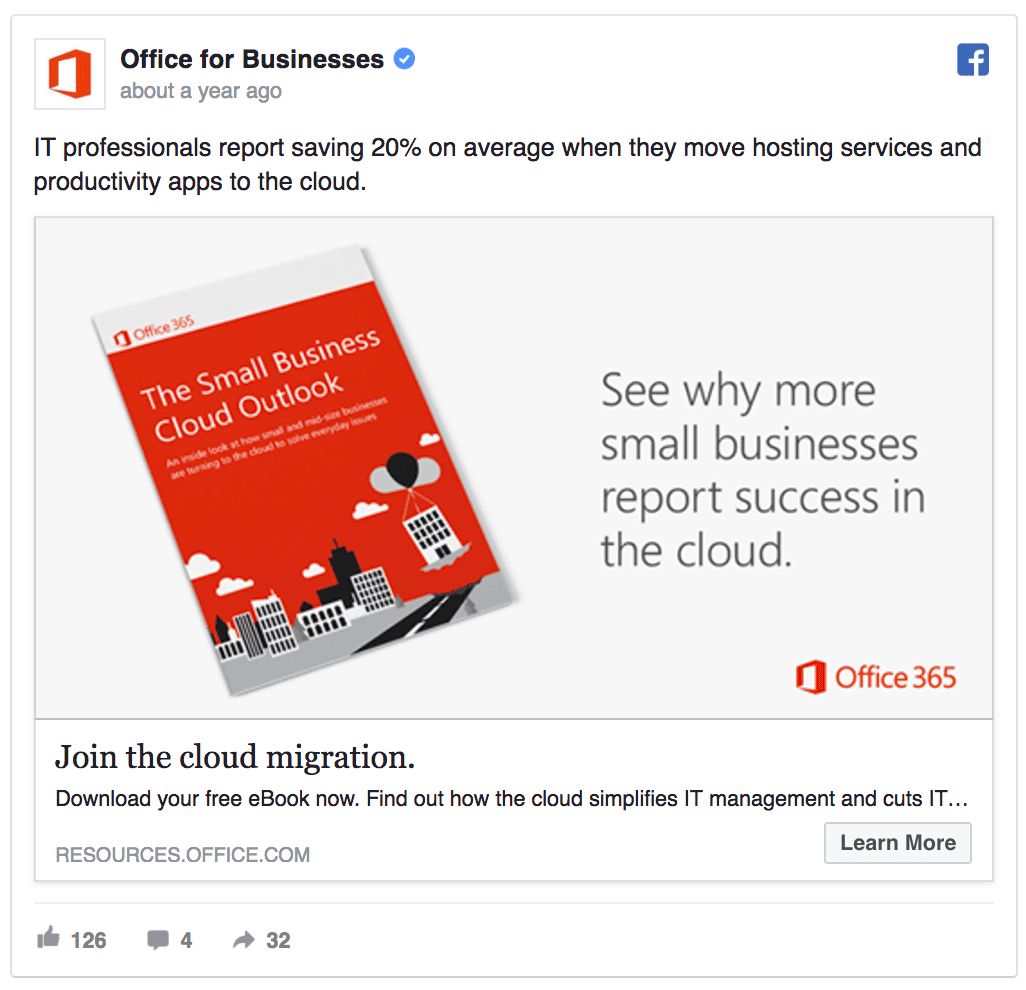
Offer more original research
Let’s focus on Originality. B2B brands that produce unique, high-value research reap benefits such as quality backlinks and increased brand trust. For example, Office for Business promoted a free research report via Facebook, while Optimizely offered a playbook on conversion rate optimization. Both campaigns provided their target audience with highly relevant, practical insights.
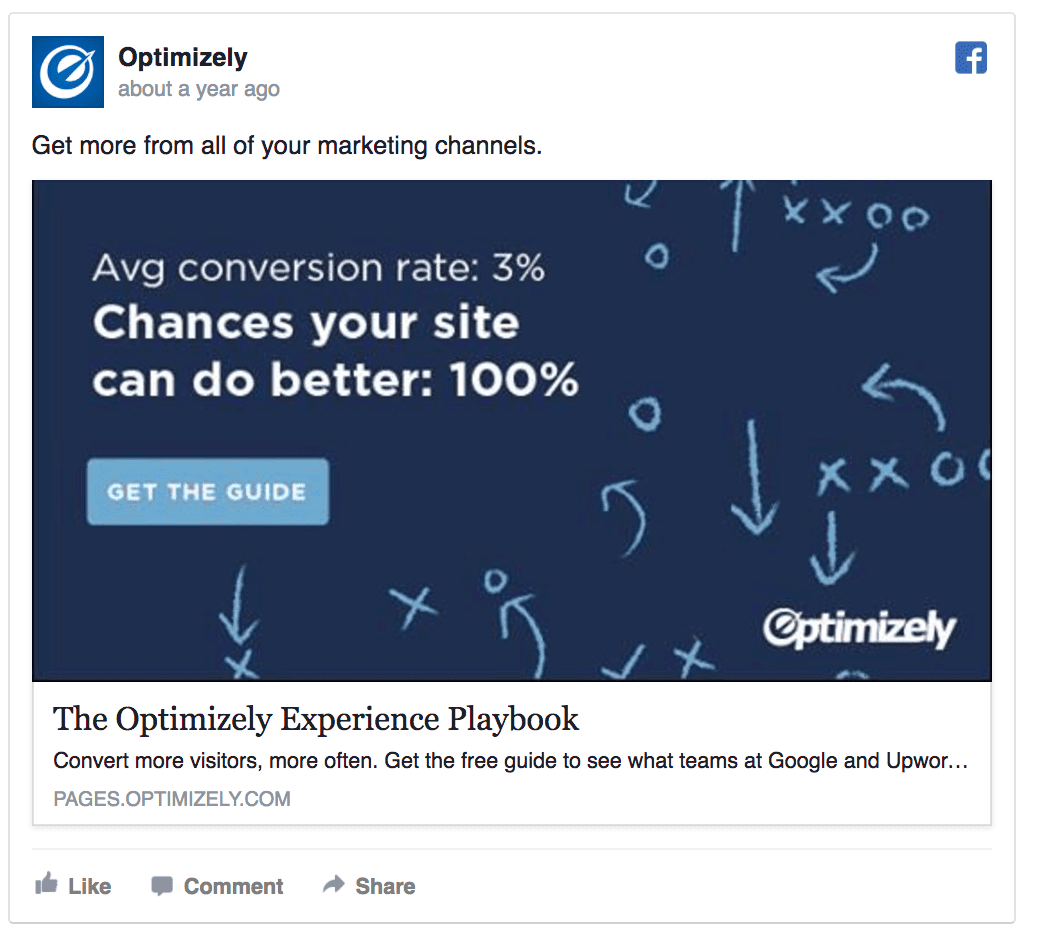
Optimizely is promoting a free playbook
Why Original Research Campaigns Work:
- They add value for both existing customers and new prospects.
- They position your brand as a thought leader in your industry.
- They increase brand awareness and encourage audience engagement.
Consider creating Facebook ads to promote reports, whitepapers, or data-driven insights that align with your audience’s challenges. Whether you’re targeting marketers, developers, or executives, offering original research not only strengthens relationships with current customers but also attracts new leads eager for trustworthy information. It’s a win-win that builds authority and drives results.
6. Share Case Studies and Testimonials Campaign
B2B sales rely heavily on trust, which takes time to build. With 80% of B2B buyers using more sources than ever—social media included—to evaluate solutions before purchasing, showcasing real customer success stories can give your brand a major edge.
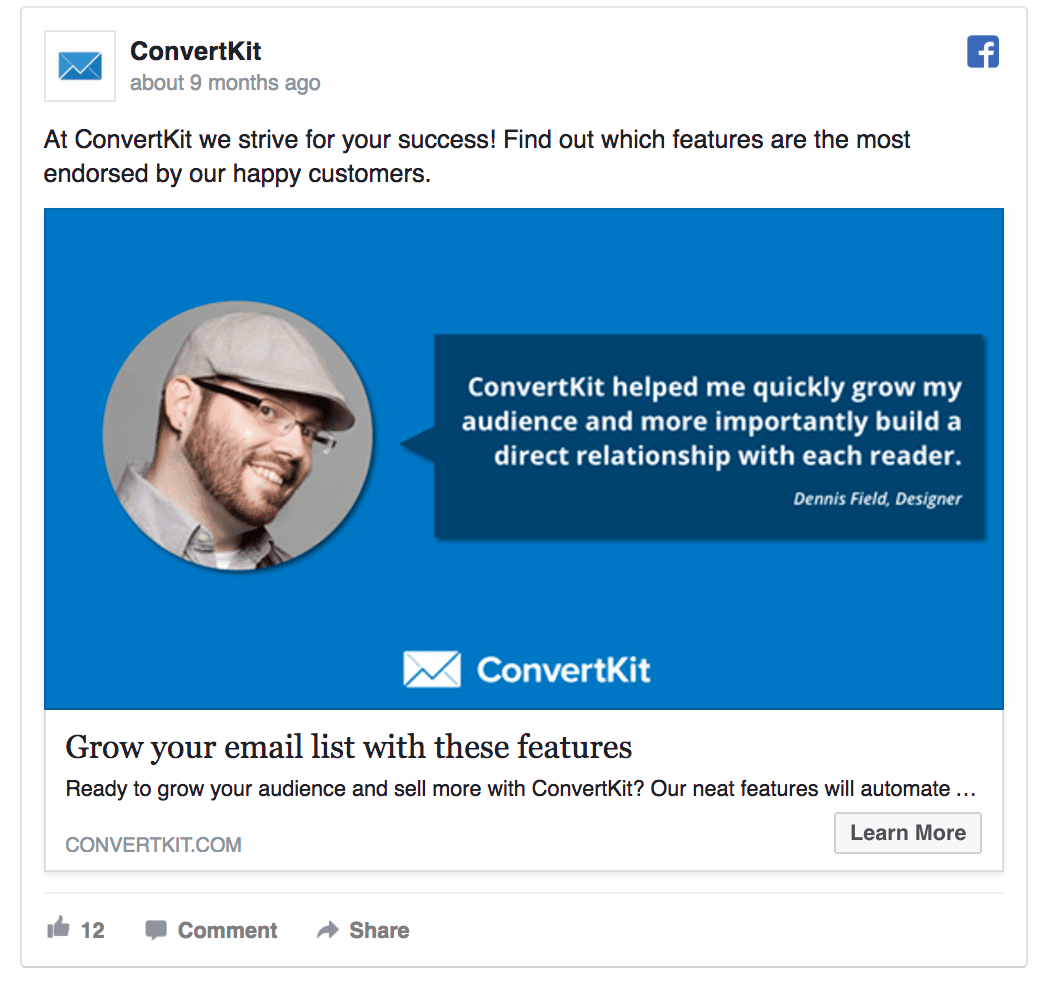
ConvertKit's Facebook ad features a testimonial
One effective Facebook ad format to promote testimonials and case studies. For example, ConvertKit created an impactful Facebook ad by embedding a customer testimonial directly into the ad image. This strategy immediately builds credibility and resonates with potential buyers.
Customer reviews and testimonials are powerful tools. Research by Dimensional found that 90% of buyers are influenced by positive online reviews, and nearly 40% of people spot these reviews on Facebook. By promoting case studies and testimonials through targeted ads, you give prospects compelling, relatable proof that your product or service delivers results.
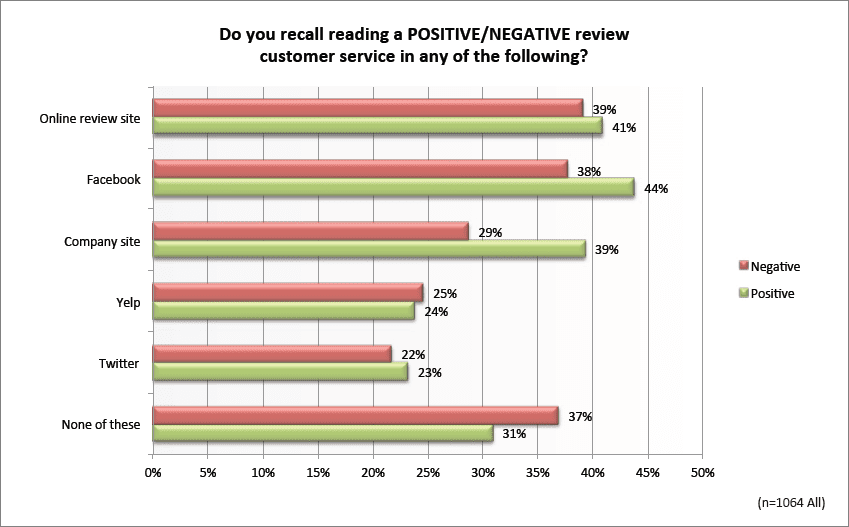
Around 40% of people read reviews on Facebook
Best Practices for Testimonial Campaigns:
- Highlight tangible outcomes in your case studies (e.g., increased ROI or improved efficiency).
- Use visually engaging formats, like videos or carousel ads, to tell your story effectively.
- Target warm leads or prospects in the decision-making stage who are more likely to be swayed by social proof.
By incorporating testimonials and case studies into your Facebook campaigns, you can bridge the trust gap, inspire confidence in your audience, and nudge potential clients closer to making a decision. When done right, these campaigns can accelerate the long B2B sales process and build lasting relationships.
7. Get New Leads with Quality Content Campaign
Successful B2B sales often start with high-quality content that addresses the needs of your audience. According to the Content Marketing Institute's benchmark study, social media and blog content are among the most widely used tactics for B2B content marketing.
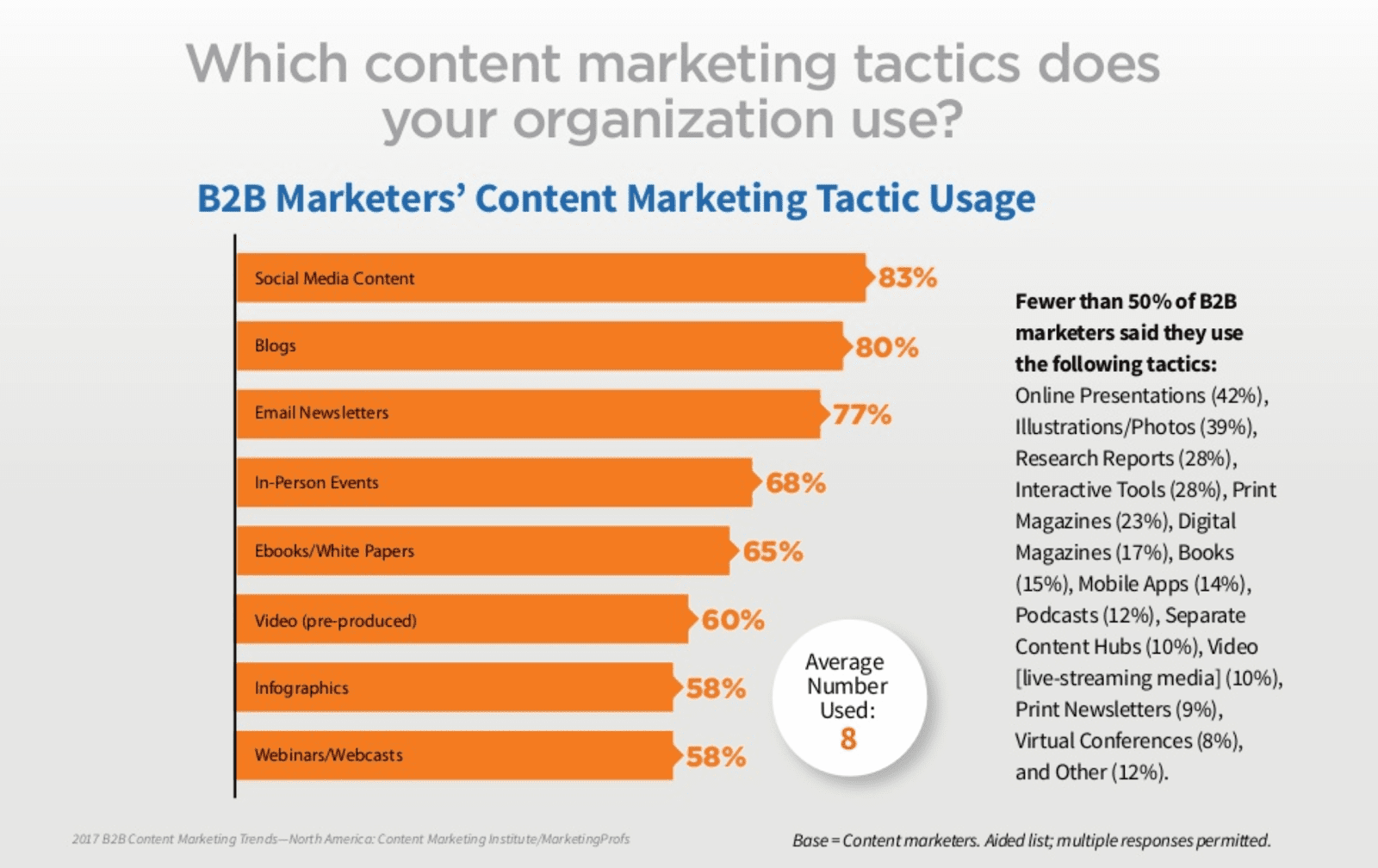
Social media is a popular B2B marketing channel
But not all content will drive large companies to your sales funnel. The key lies in providing a valuable and relevant experience. For instance, OkDork offers a free 30-day email marketing course, an incredibly compelling offer for marketers seeking expert advice. Similarly, Litmus uses Facebook ads to promote smaller, highly relevant content offers, perfectly aligned with its target audience.
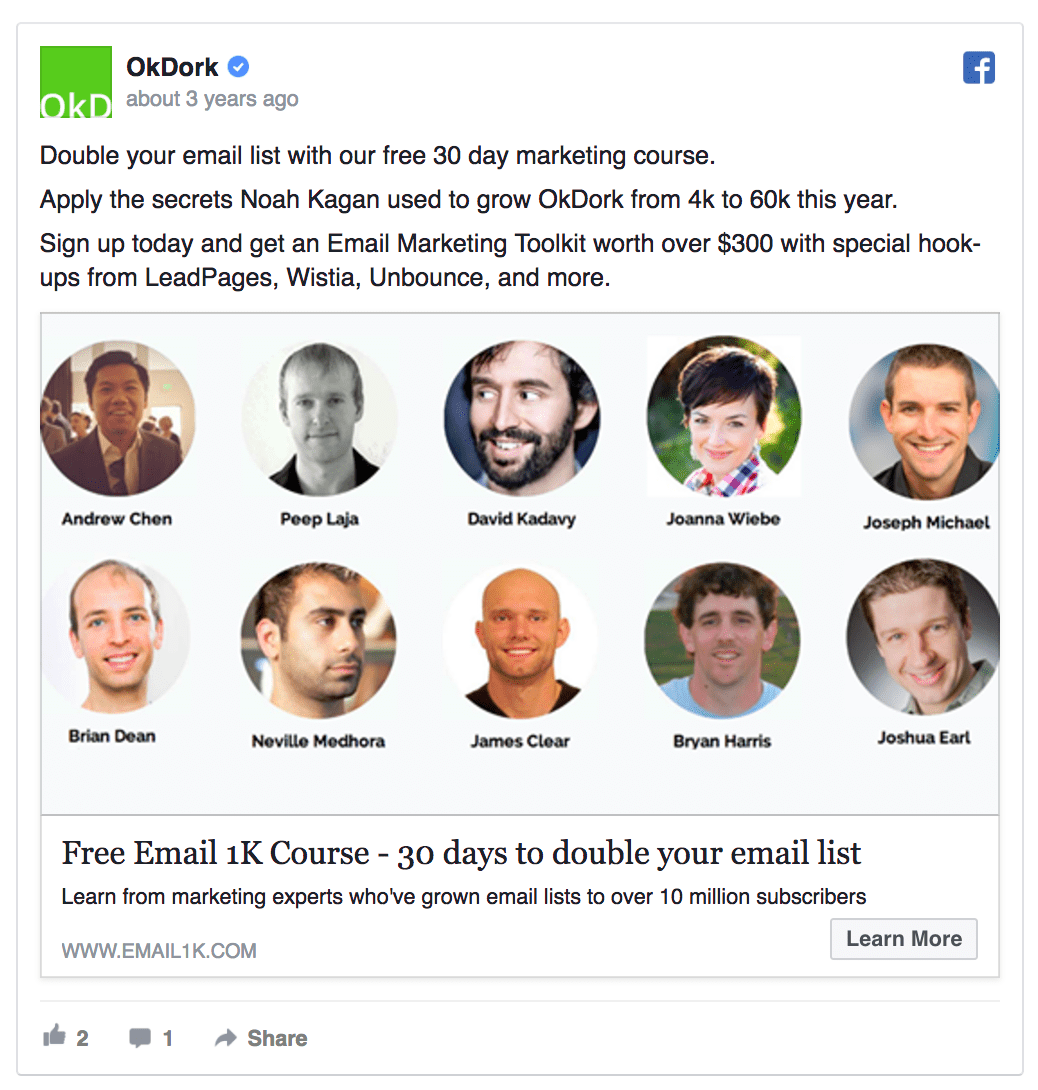
OkDork's Facebook ad offers a free course
Another example comes from NewsCred, which created a campaign centered on a new, highly targeted landing page. The page specifically resonated with content marketers by combining storytelling, brand campaigns, and niche topics like fashion.
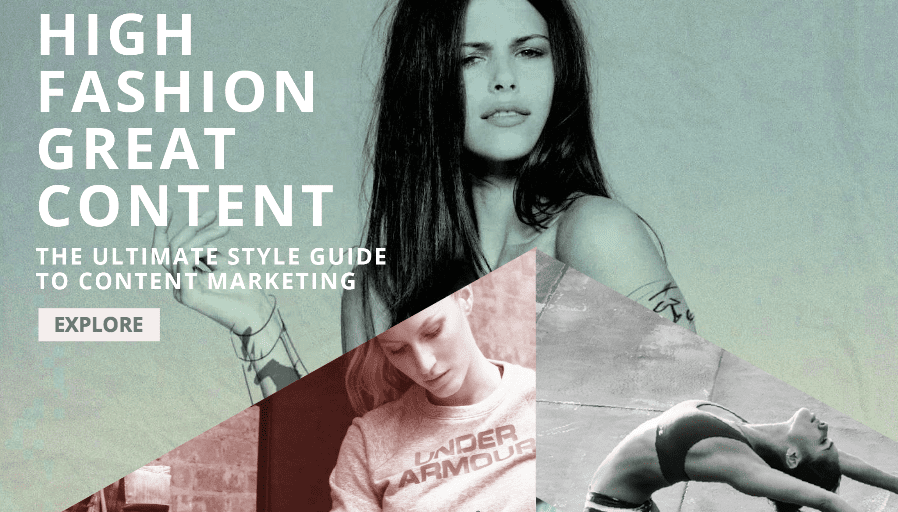
NewsCred's B2B campaign has a dedicated landing page
Before launching your own campaign, take a moment to identify your ideal audience and their unique challenges. Once you’ve got that clarity, focus your efforts on creating content that speaks directly to them. By doing so, you’ll not only attract new leads but also build lasting trust and authority with your brand.
8. Side Project Marketing Campaign
Side project marketing is a growing trend among brands looking to attract new leads and boost awareness. But what exactly is it? Simply put, side project marketing involves creating a small, standalone product that complements your main offering. The side project addresses a specific problem or goal, acting as a value-driven gateway to your primary business.
For example, HubSpot’s Website Grader allows marketers to evaluate on-page SEO, page speed, and security—a simple but powerful tool that aligns with their core audience’s needs.
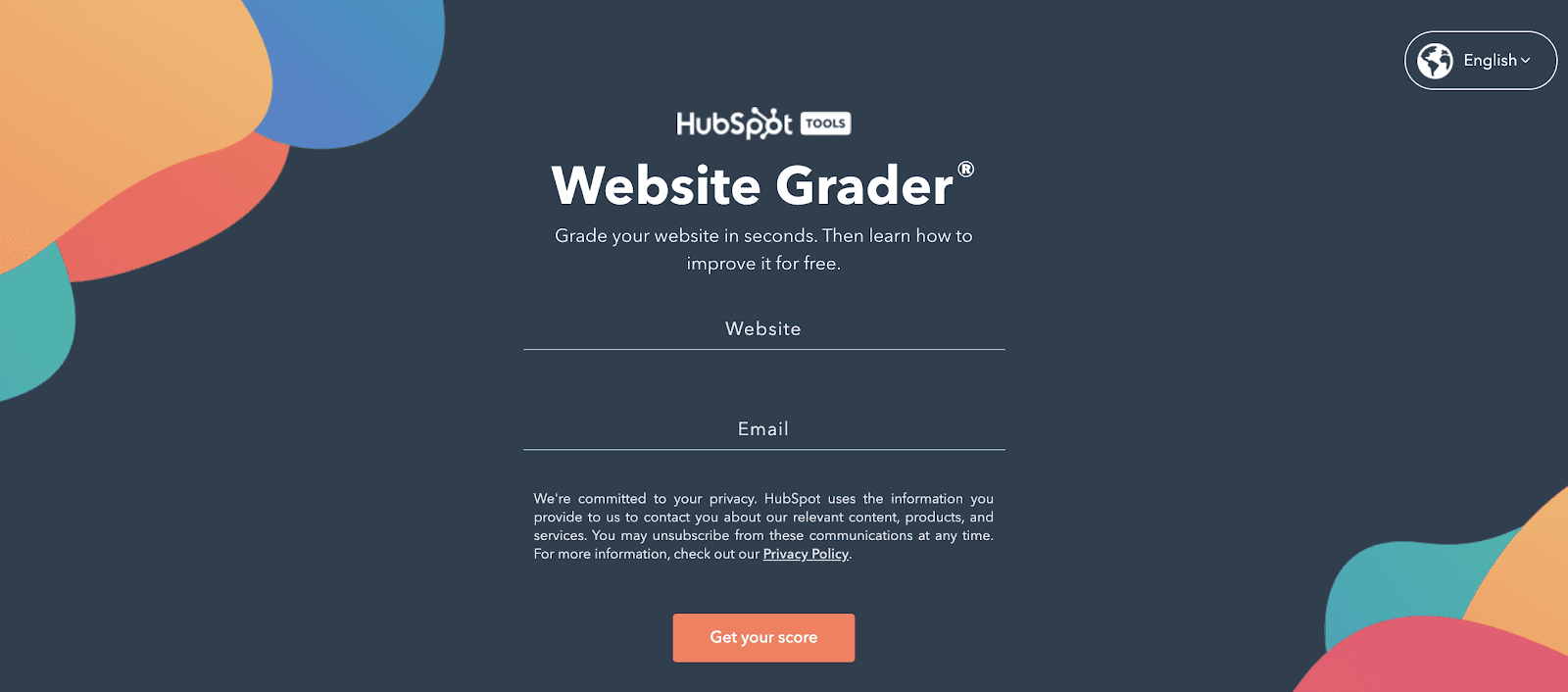
HubSpot is doing side project marketing
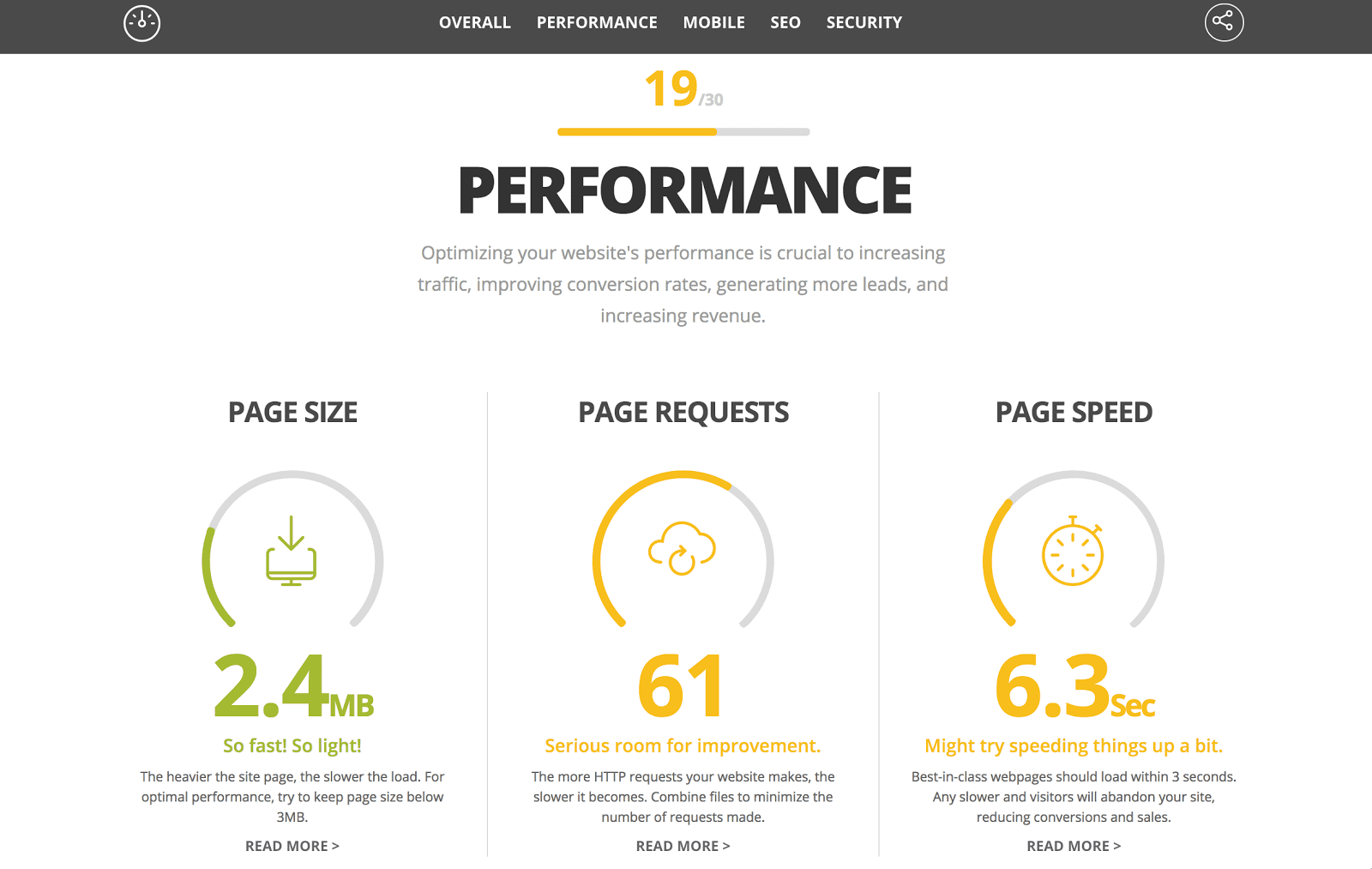
Here's what the results look like
Similarly, Salesforce’s free ROI Calculator helps businesses measure potential returns, while simultaneously introducing them to Salesforce’s broader solutions.
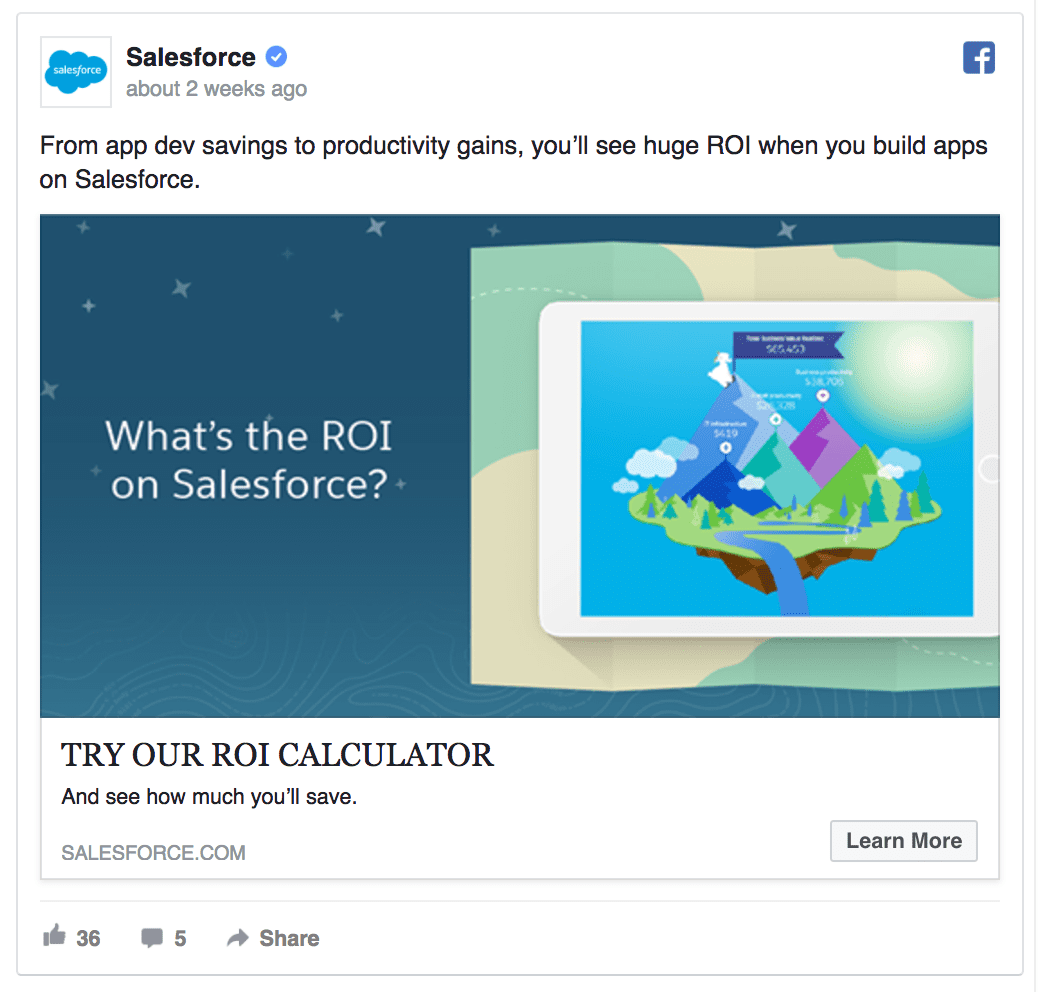
Salesforce's side project
To execute side project marketing effectively, follow these best practices:
- Scratch your own itch: Create a solution for a problem you deeply understand.
- Leverage existing resources: Use tools, knowledge, or data you already have to save time and money.
- Simplify your solution: Focus on a specific feature or outcome that can easily generate interest.
- Stay market-aware: Build side projects that address current industry trends.
- Deliver an exceptional experience: Don’t cut corners on design or usability—this project reflects your brand.
- Promote intentionally: Treat the side project as its own campaign and give it the attention it deserves.
By running Facebook ads that highlight your side project, you can drive meaningful engagement, attract qualified leads, and expand your brand’s presence in a creative and impactful way.
9. Free Demo Offer Campaigns
If your product requires a learning curve, offering a free demo or trial is a great way to boost conversions. Pipedrive’s Facebook ad, for example, uses a simple “Sign Up” CTA, directing users to a landing page offering a free trial and onboarding them into the sales funnel.
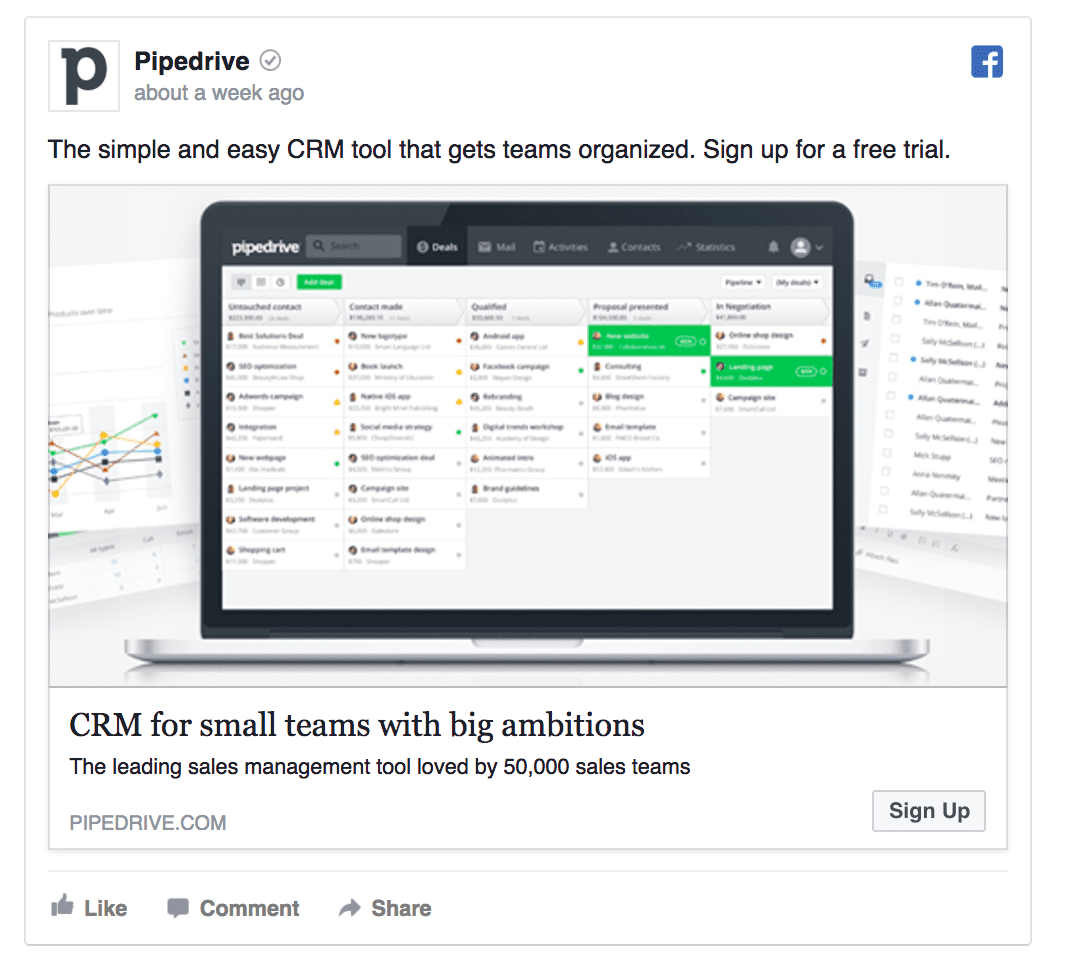
Pipedrive's ad jumps right to the sales pitch
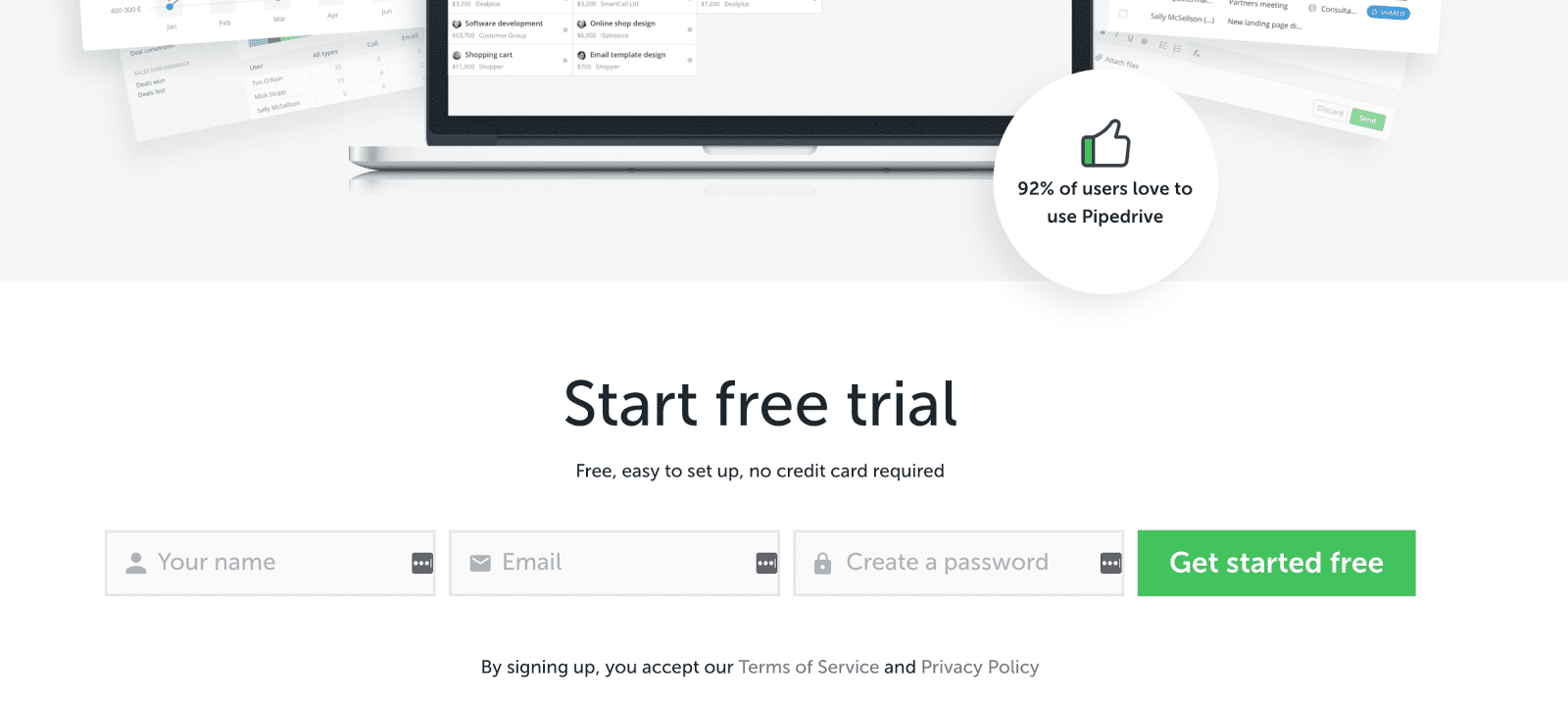
Pipedrive's landing page offers a free trial
Facebook Lead Ads also work well for capturing sign-ups directly on the platform, particularly for SaaS products or downloadable resources like eBooks. Infusionsoft effectively used this approach to promote email marketing tips, while Clanbeat reached B2B audiences with Instagram ads tailored for smaller companies.
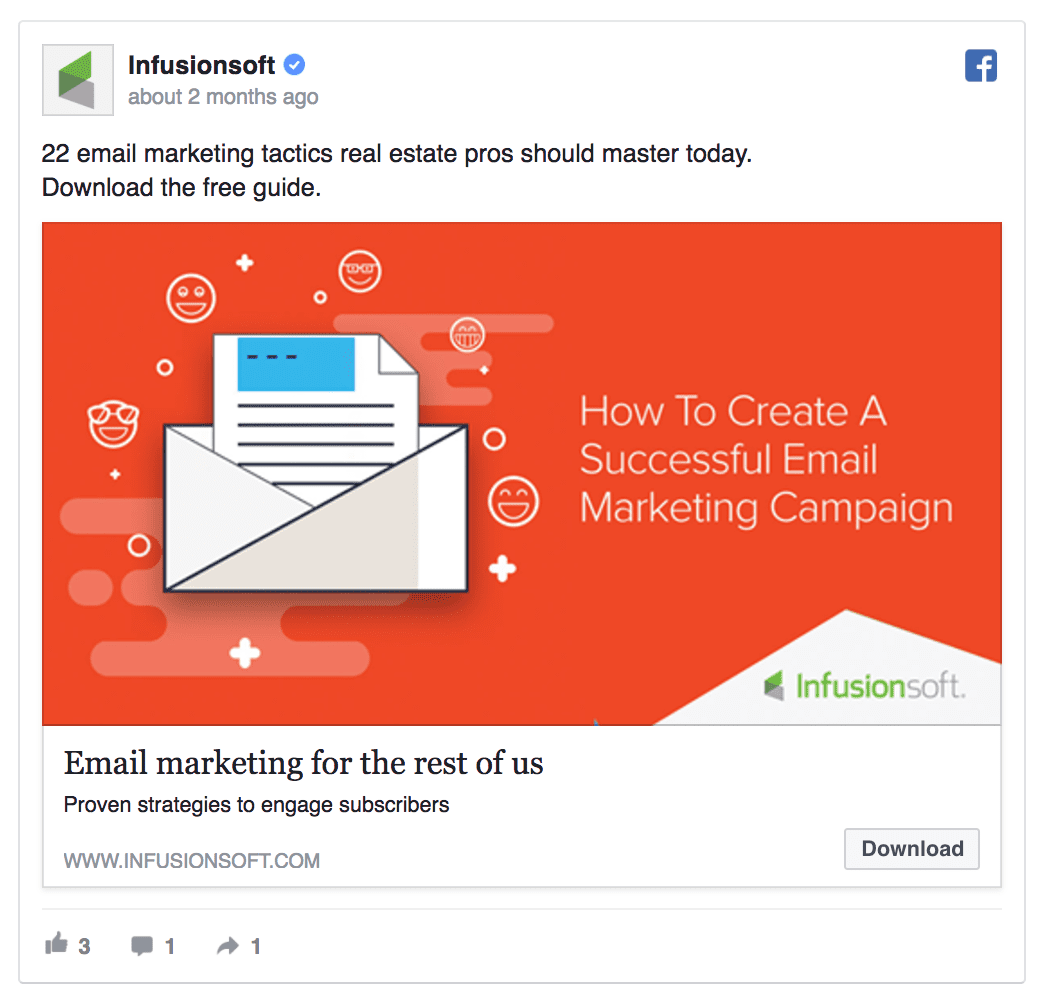
Infusionsoft's offering a helpful eBook
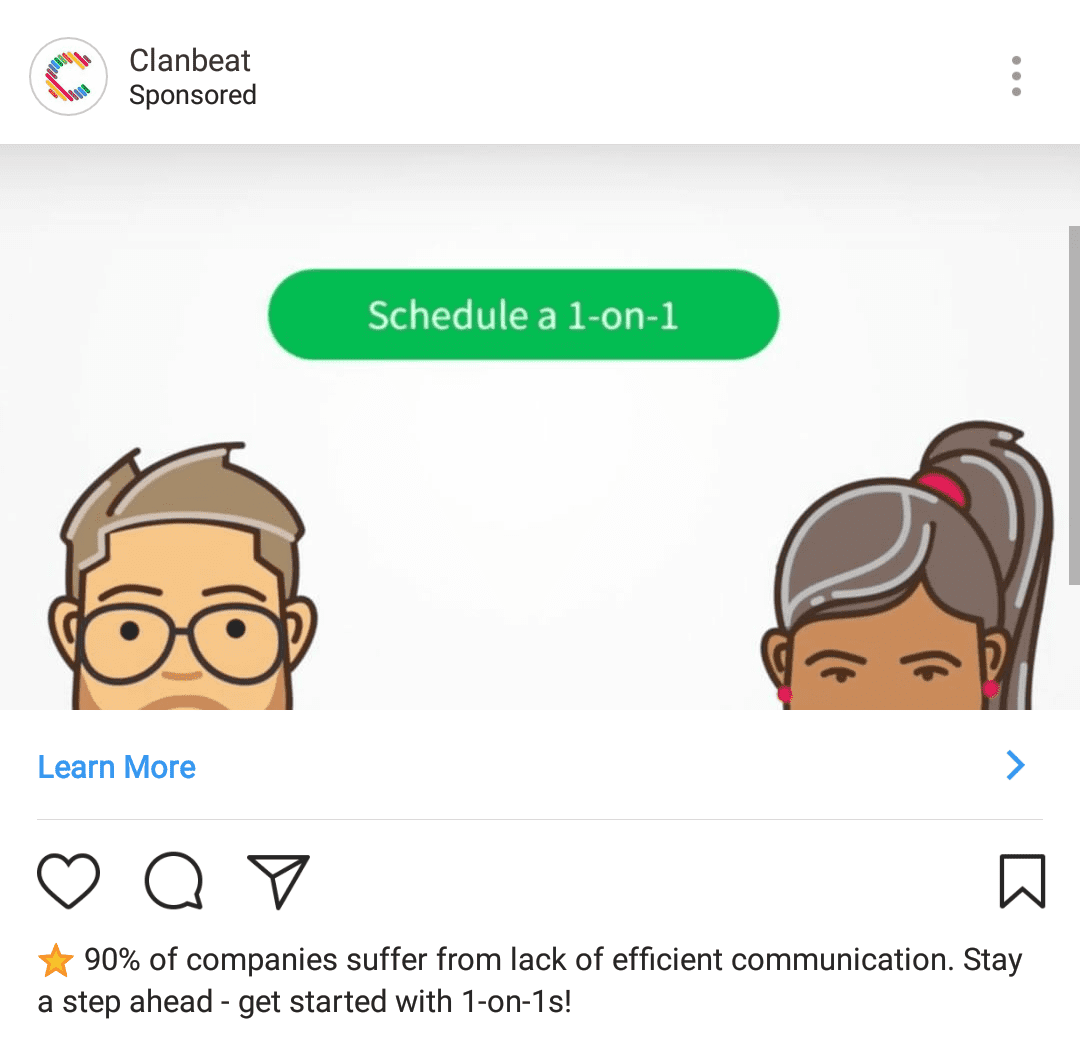
Clanbeat is using Instagram ads to reach B2B audiences.
To maximize success, focus on ad placements where your audience spends time—whether mobile or desktop—and ensure your landing page is mobile-friendly, as most users will access it on their phones. A seamless experience can make all the difference in driving engagement and conversions.
9. Enhance Your Onboarding Experience Campaign
Signing up a new lead is just the start—effective onboarding is key to turning them into paying customers. According to ConversionXL, many leads fail to convert because they don’t fully understand how to use the product or its value. To solve this, use product walkthroughs, tailored guides, or case studies that show specific use cases. For example, Intercom’s Facebook ad promotes its demo feature and directs prospects to a landing page full of practical examples. Custom Audiences of trial users can be targeted with onboarding guides to ensure a seamless transition from lead to customer.
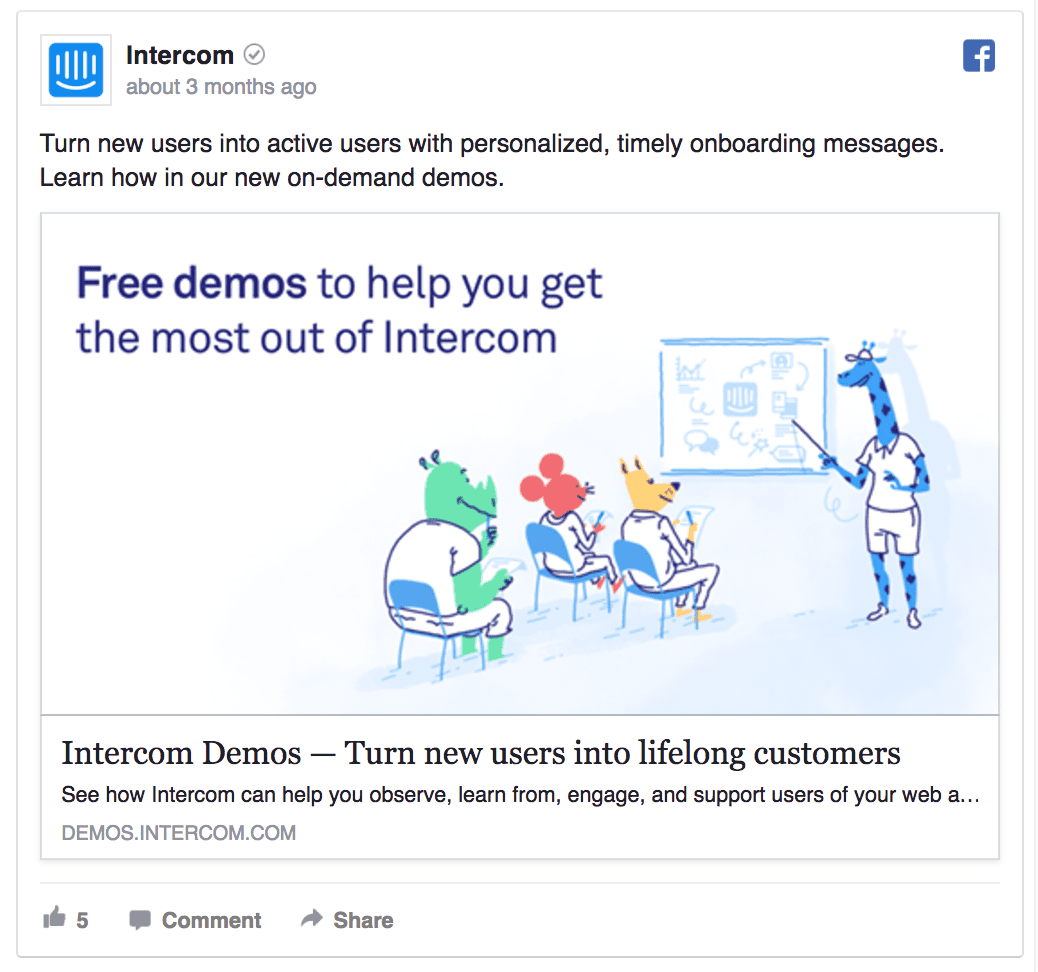
This Intercom ad introduces a specific feature
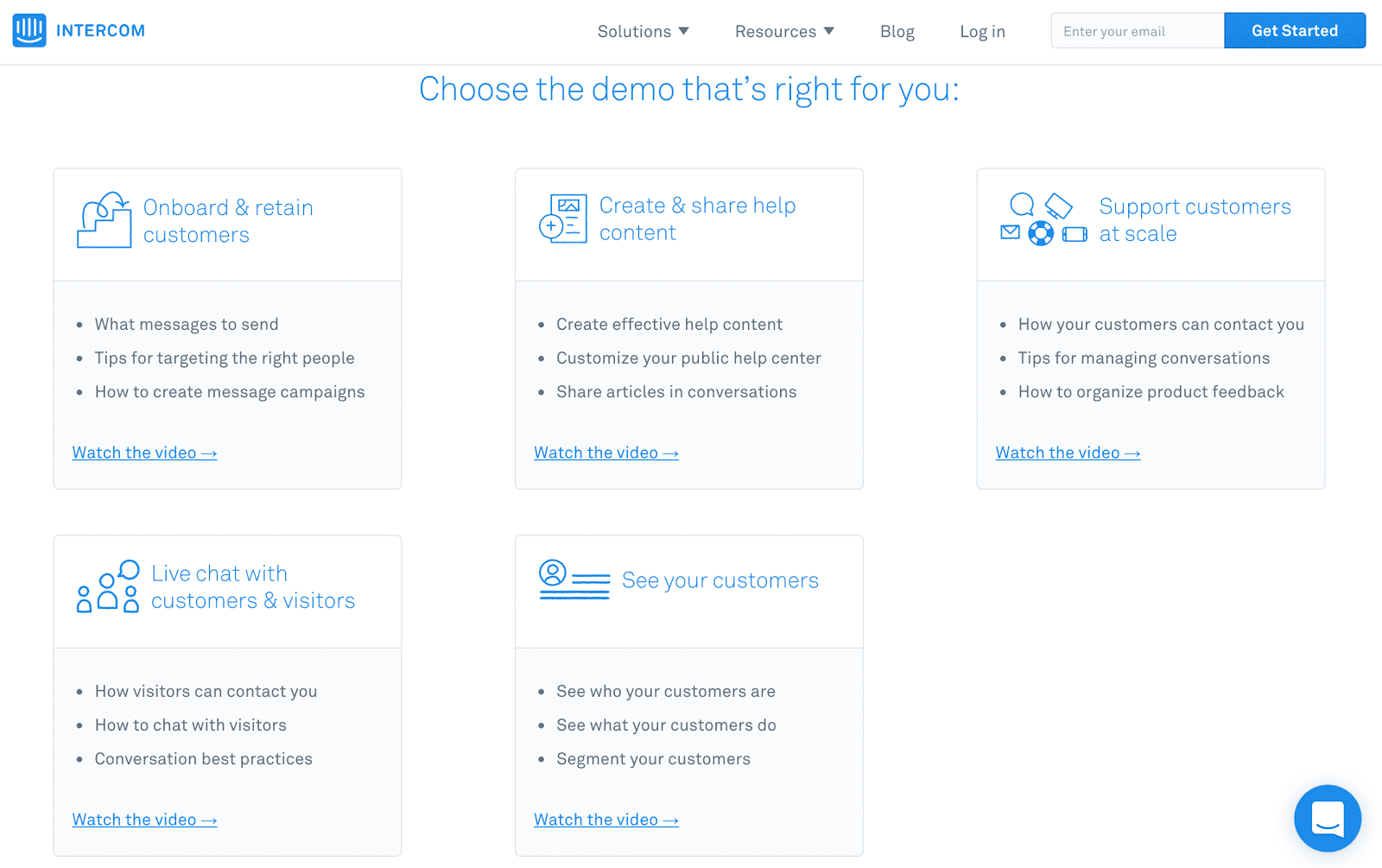
Intercom's landing page
Reaching Your B2B Audience on Facebook
Facebook’s targeting tools can help you reach the right B2B audience:
- Interest Audiences: Use Detailed Targeting to find users by industry, job title, or interests like events and competitors.
- Custom Audiences: Retarget website visitors, newsletter subscribers, or past customers using the Meta Pixel to refine these groups.
- Lookalike Audiences: Clone your top customers to find similar leads likely to convert. Narrow large audiences with additional filters for better focus.
By combining these options, you can craft campaigns that turn cold leads into engaged customers.
B2B Facebook Ads are worth it
B2B Facebook ads offer enormous potential for brand awareness and conversions if you use the right strategies. Whether it’s through onboarding campaigns, upselling, or precise audience targeting, success comes down to delivering value at every stage of the funnel. Finally, ensure your landing pages are optimized to convert the traffic your ads generate—because great ads need great follow-through.
FAQs
How can B2B companies use Facebook Lead Ads to generate leads effectively?
B2B companies can use Facebook Lead Ads to simplify the lead generation process by creating forms that collect user information directly on the social media platform. These ad formats reduce friction, allowing mobile users to submit their details without leaving the news feed. To optimize performance, target the right audience using detailed targeting options, such as job titles, industries, or interests. Combining custom audiences with lookalike audiences ensures you reach decision-makers, improving campaign performance.
What role do Facebook Video Ads play in B2B advertising?
Facebook Video Ads are powerful tools for B2B ad campaigns, helping to increase brand awareness and engage website visitors. These ad types deliver impactful messaging in short, digestible formats, ideal for communicating a value proposition. Use ad creative that resonates with your brand's target audience and showcase success stories or product features. Placing these ads in the news feed or audience network ensures visibility across Facebook users and mobile users, improving campaign performance.
What are the best Facebook targeting options for reaching B2B decision-makers?
To reach B2B decision-makers, use Facebook’s Detailed Targeting Box to identify core audiences by job title, industry, or interests. Custom audiences built from customer files or website visitors help refine targeting. Additionally, use lookalike audiences to find users similar to your existing customers. Consider using demographic targeting and layering interests to further narrow your estimated audience size. This ensures your ad placement delivers the right message to the right audience.
